The Guide
A comprehensive overview of the Danish startup ecosystem





We would like to thank the following partners, sponsors and advertisers for making “The Guide” possible:
The Link/Startup Aarhus is a non-profit organisation connecting, branding and linking the Aarhus startup ecosystem





KPMG is a global accounting agency consulting within audit, tax and advisory services to many of the world’s leading organizations.
BioInnovation Institute is an incubator which accelerates world-class life science innovation.

DI - Dansk Industri is Denmark’s largest business organization and employers’ association representing nearly 20.000 companies.
TechStation is a hard tech innovation hub offering a highly specialized space for innovation and development.
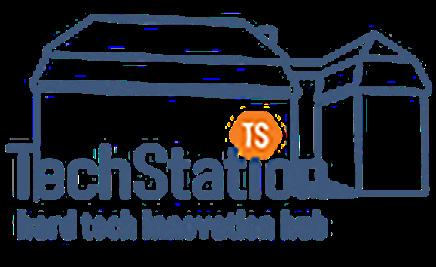
Deloitte is a leading professional service network consulting within audit and assurance, financial advisory, risk advisory, tax, and related services.
Hub for Innovation in Tourism supports entrepreneurship and innovation that strengthens sustainable growth in Danish tourism.
Danish Patent And Trademark Office work to support innovation, strengthen corporate competitiveness and fight counterfeiting and piracy.
Black Capital Ventures is an impact venture studio accelerating high-tech startups in GreenTech and MedTech.
Nordic Secondary Fund is the first and only fund in the Nordics to exclusively invest in secondaries.
Plougmann Vingtoft is one of Scandinavia’s leading consultancy firms within the management, protection, commercialization and strategic use of IPR.


We are already looking forward to working with you all and many new friends for next edition of „The Guide“. Please reach out, if you want to join the next edition!

”The Guide” is produced by TechSavvy.Media & Heyfunding

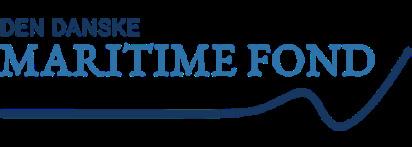
Editor in Chief: Sebastian Kjær
Journalists: Erik Lillelund and Sebastian Kjær
Layout: Vratislav Pecka

Published by TechSavvy Media. Contact: sales@techsavvy.media info@heyfunding.dk


06-07

STUDENT ENTREPRENEURSHIP + UNIVERSITIES
08-12
EVENTS, AWARDS & COMPETITIONS
Editorial: Help us build a stronger Danish startup ecosystem

From student to startup

Universities are becoming an increasingly important part of the startup ecosystem. Not just as a technology provider, but as a breeding ground for new, innovative startups.
14-17 Get the ball rolling
Startup events are both a fun gathering place and a deadserious part of growing a startup.

18-21
The help is always close by Starting a business might feel like a huge and lonely journey. But it doesn’t have to be like that.
22-23
Unlocking the potential of female founders
Diverse teams outperform teams who are too much alike. Still, the Danish startup ecosystem is heavily male-dominated. There is still a lot of work to be done
COWORKING SPACES + SCIENCE, TECHNOLOGY & DEV. PARKS
24-27
Start up with likeminded people
In some cases, your parents’ garage might be a great place to start your business. At least according to startup lore. In most cases, a coworking space might be the better option.
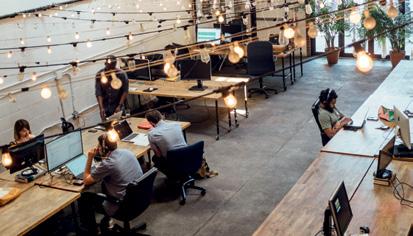


28-33
SOFT FUNDING
34-37
Expand your industry-specific network
The industry specific clusters are thriving and most of them have a lot to offer for startups and scaleups.
38-39
Get funded without giving up equity
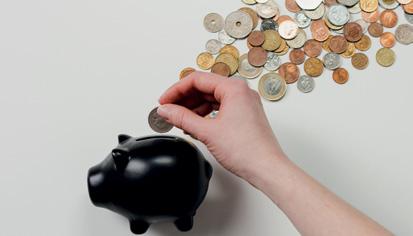
It’s almost impossible to build a business without money. And the initial funding is crucial to the journey ahead.
Raise your first investment
Friends, Family and Fools: The 3 F’s are often the first lifeline for startups when it comes to funding. When this supply line is exhausted, startups often turn to business angels for additional funding.
GTS
INSTITUTES
40-43
CROWDFUNDING
44-47
INCUBATORS
&
48-53
SEED & VENTURE CAPITAL
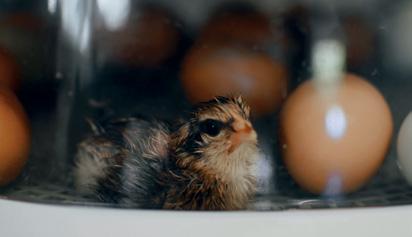
Accelerating new knowledge into the marketplace
Most startups are built on an urge to change something - often by combining new ideas and technologies.
Connect with your customers while funding your idea

Startups can create a loyal following that help drive future growth and support with crowdfunding the idea.

Accelerate the path to success
Capital for the rocket fuel
Once a startup has found its perfect recipe for growth, they need the fuel that will really get the rocket ship to take off.

LATE STAGE CAPITAL
62-65
CORPORATES IN THE ECOSYSTEM
66-71
STARTUP COMMUNITIES, MEDIA & RESSOURCES
+
Sustained growth requires deep pockets

Many startups need investors with big wallets to keep growing at a high pace - even after establishing revenue and gaining unicorn status.
Big business in startups?
Corporate companies are developing programs to get in contact with startups and provide them with resources and support to help them develop their businesses.
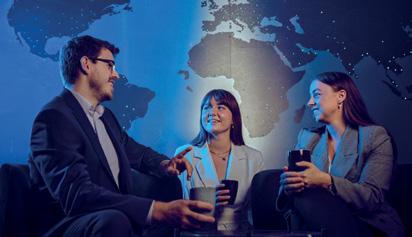

MISCELLANEOUS
Find inspiration from others
Find our list of all the stakeholders in the ecosystem
Once upon a time, building a tech startup was a wild and lonely adventure only few, brave entrepreneurs dared embark on. However, times have changed. Drastically.
Today, the number of successful startups and scaleups from Denmark is booming. Communities are forming all over the country, and the number of stakeholders and initiatives surrounding the ecosystem and supporting the wild growth is amazing. In a few decades, the startup ecosystem has grown from somewhat of a
curiosity to its own, to a flourishing part of the Danish business community.
While the explosive growth and ever-changing nature of the ecosystem is what makes it so amazing to be a part of, it also makes it a jungle to navigate for both newcomers, experienced serial-entrepreneurs and ambitious stakeholders. It is extremely complicated and resource-intensive to fully understand the dynamics and find your way around.
In order to make the ecosystem more accessible, Techsavvy Media and Heyfunding joined forces. And we are happy to
finally present this first edition of “The Guide - A comprehensive overview of the Danish startup ecosystem”. A guide built on top of Heyfundings mapping of the startup ecosystem and Techsavvys editorial and startup-centric expertise.
Raise your hand and ask for help
Startup founders usually have a certain drive. They make things happen, but that does not mean entrepreneurs have to know and do everything by themselves. If startups should only take one thing away from this magazine, it is exactly
TechSavvy.media is the leading digital startup media in Denmark. We specialize in great storytelling from the intersection between technology, innovation and business. We’ve brought the latest news from the Danish startup landscape, portrayed the biggest stars and dived into the latest trends for close to a decade. The past year, we’ve added a series of industry specific magazines to the mix (like the one you’re reading right now).
that: Building your startups does not have to be lonely. Remember to ask for help - it will only help you avoid mistakes and move faster towards success.
This publication is all about the wealth of the amazing stakeholders in the ecosystem ready to help in every conceivable way. To mentor the entrepreneurs, fund and boost their venture and bring in the established companies to help the ecosystem grow and thrive.
No matter the industry, geography, size or shape, we have met the same affection for the startup ecosystem over and over again throughout our work with this publication: Every stakeholder wants to improve the Danish ecosystem. They do not want to compete but to help, support and collaborate in order to take the startup ecosystem to the next level.

Our hope is that “The Guide” will be your perfect tool for navigating the Danish startup ecosystem. A new take on the yellow pages with mappings and lists of hundreds of initiatives in the ecosystem combined with great storytelling. Something that will help startups throughout their growth journey and hopefully foster new connections across the ecosystem along the way.

We want to take this opportunity to thank all our friends in the ecosystem who contributed to this publication. Believe us when we say: It is amazing to see the effort, the care, the difference everyone wants to make and the pay it forward attitude that is present every day.
Enjoy!
Heyfunding is a single-point-of-entry platform to the Danish startup ecosystem. Our mission is to make it easier for everyone to navigate the startup ecosystem. Our impact is rooted in over a decade of independent research and working side-by-side with more than 500 stakeholders in the startup ecosystem. Our mapping of the Danish startup ecosystem has become best practice and is used every day across the entire ecosystem.

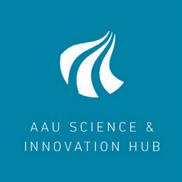




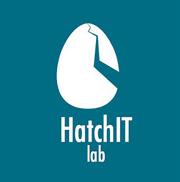


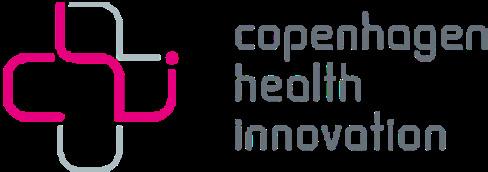











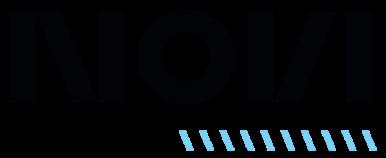




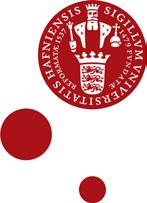

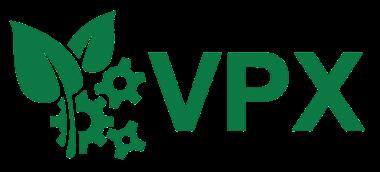
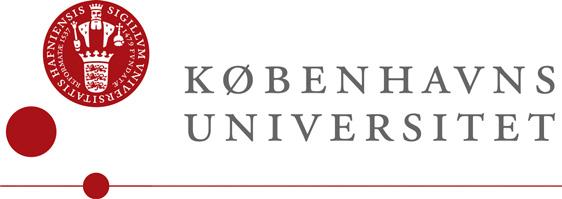
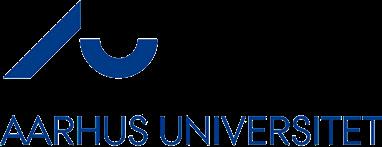



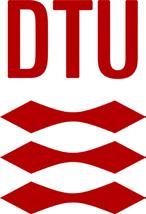


Universities
We love the tale of the lonely genius who drops out of college to start a wildly successful company. In reality, however, a lot of successful startup-founders have a university degree before starting their business.
Universities are home to some of the world’s leading researchers and thinkers, who have access to cutting-edge technology and infrastructure. This provides a fertile ground for new ideas and innovation, and many university startups are founded on the back of research conducted at the universities.
University startups can be founded by students, faculty members or alumni of universities – or a mix of the three. They are an important part of the innovation ecosystem, as universities provide a unique environment for creativity, collaboration, and access to resources and funding.
In addition to access to research and technology, universities also provide a
supportive environment for entrepreneurship. Most of the higher education institutions have included entrepreneurship and innovation in their curriculums, established entrepreneurship centers, accelerators, and incubators that provide mentorship, training, and funding to student and staff entrepreneurs. The universities also have technology transfer offices (TTO) that connect research results with the industry by commercializing inventions, facilitating collaborations and training researchers to create spin-out companies. Most universities also offer students to do an internship in their own startup, train their entrepreneurial skills in a case competition, or work with innovative companies in a thesis project.
Another key component of the university startup ecosystem is the student body. Many universities have a large and diverse student population, which provides a talent pool of future employees, customers, and supporters

for university startups. Furthermore, students are often eager to participate in entrepreneurial activities and are more likely to take risks and pursue unconventional career paths. Many of the student entrepreneurship initiatives in the Danish startup ecosystem are also run by passionate students.
One of the biggest challenges for university startups is the limited experience of the founding team, who may not have the same level of business acumen and industry knowledge as experienced entrepreneurs or industry veterans setting out to start their own business.
A common student founder mistake is to get too caught up in developing the product instead of selling it. This can be particularly true, when your product relies intensively on research as is often the case with startups founded at universities. However, a lot of initiatives spanning across universities, like Open Entrepreneurship, is set into place to encourage the commercialization of research opportunities.
The university ecosystem also provides access to funding through various sources such as grants, pitch competitions with prize money, investment vehicles, and networking events with angel investors and venture capitalists like Antler. These investors are often attracted to university startups due to the unique combination of intellectual property, technology, and talent that they bring to the table.
As an established company you can gain access to new knowledge from the universities through collaboration with students and researchers e.g. internship, research and development project, hire an professional ph.d, or license new technology via the TTO.
• 8 universities
• 165.000+ students
• 2.000+ startups and pre-startups each year
are becoming an increasingly important part of the startup-ecosystem. Not just as a technology provider, but as a breeding ground for new, innovative startups.
Sponsored: This article is published in collaboration with Open Entrepreneurship
Open Entrepreneurship invites experienced entrepreneurs to collaborate across all Danish universities. It creates new startups based on research and new technology.
Experienced entrepreneurs should enter universities to unlock the potential for the commercialisation of research and the development of entrepreneurship in research. This is the idea behind Open Entrepreneurship (OE), which also aims to foster collaboration across research fields and universities.
OE has therefore established business units at all Danish universities, where staff have both an entrepreneurial background and academic insight into the research fields on which the initiative focuses.
OE was established as a pilot project in 2017 with the help of the Danish Industry Foundation, which has continuously supported it with approximately DKK 50 million. The grant from Industriens Fond runs until the end of 2023. Since its inception and at an accelerating pace, the programme has created:
• +100 research-based companies
• 75 cases with commercial potential annually
• Raised +175 million DKK for new companies.
• Established +150 collaborative relationships between research environments and industry.
• Implemented +60 learning and capacity-building programmes in universities.
• Involved +650 researchers in various Open Entrepreneurship events.
Read more at www.open-entrepreneurship.dk
Research can only really make a difference to major societal challenges such as the green transition if it is effectively brought to market. How best to do this was discussed at the Open Entrepreneurship Annual Conference 2022.

Foto: Kaare Smith
These business unit managers act as catalysts and links between researchers, university culture and the business community. For example, by putting together the right teams to mature research into commercial businessteams with representatives from both industry and academia.
“With OE, Danish universities have created a unique ecosystem of budding research-based startups, entrepreneurs and researchers. An initiative that has developed into one of the most important strategic collaborations across Danish universities and that promises the commercialisation of university research,” says Helle Nielsen-Elgaard, Head of Innovation at Open Entrepreneurship.

“Technology is not the solution in itself”
OE was established as a pilot project in 2017 with the help of the Danish Industry Foundation, which has provided ongoing support of DKK 50 million. To continue in the current national setup, the project
needs an annual grant of 20 million DKK.
“A fixed grant is important as experience shows that projects like OE otherwise might fizzle. That would be a shame, as OE is an effective engine for succeeding with societal challenges like the green transition. New technology is not the solution in itself, but needs to be produced and brought to market to make a difference,” says Helle Nielsen-Elgaard.
With more than 100 research-based companies and 75 cases with commercial potential per year, OE has already proven to be a catalyst for growth, prosperity and jobs in Denmark.
 Helle NielsenElgaard Head of Innovation at Open Entrepreneurship
Foto: Carl Johan Dahl
Helle NielsenElgaard Head of Innovation at Open Entrepreneurship
Foto: Carl Johan Dahl
More than half of all startups fail because the team is not right. That’s why finding the right team of cofounders is essential, says early-stage investor Antler.
Michael J. Wiatr, General Partner at Antler, points to three things in particular that are important when looking for the right team:
“Find someone you have chemistry and share basic values with. It’s important that you are driven by the same vision. And diversity is a great strength in terms of demographics, personality, professionalism and competences - your co-founders don’t necessarily have to be the same type as your best friend,” he explains.
Twice a year, Antler opens up for applications to become a founder-in-residence. Founders are selected from among the strongest tech profiles, commercial specialists and domain experts for a 12-week programme focused on idea generation, match-making and
networking. The goal is to establish new startups led by strong teams.
The programme forces entrepreneurs to talk through some tough issues and get aligned from the start. Ideas can change, but we believe that the right mix of founders can always pivot. It’s the people we invest in,” says Wiatr.
The founders of Virtuall - a 3D internet infrastructure platform for the fashion industry - have benefited from Antler’s approach.

“Through the programme, we tried collaborating with many different potential co-founders. For us, this meant that we came together as quite differ-
Michael J. Wiatr General Partner at Antlerent founders across four nationalities to build what the company is today. We would never have met each other by chance,” says Jonas Wallengren, co-founder and CEO of Virtuall.

A study by CB Insights shows that over 50% of startups in 2018 went bankrupt because founders were not aligned from the start for one reason or another. And that’s why finding the right match is so important.
“It takes an average of 7 years to create a unicorn. When you have to work together that long, it’s really important to have a good partnership. It’s especially when things are hard and difficult that teams are tested. That’s when good teams show their worth,” says Michael J. Wiatr.
• Antler is a global multistage investor with 25 offices across six continents. The venture fund supports startups from day zero up to Series C.
• Antler is the world’s most active angel/seed-stage investor. With more than 140 investments in the Nordic region, the venture fund is also among the most active here. Over the past four years, Antler has worked with more than 900 entrepreneurs in the Nordics, carefully selected from more than 16,000 applicants. You can apply at www.antler.co/apply
Sponsored: This article is published in collaboration with Plougmann Vingtoft
More companies should be attentive to the differences intellectual property rights (IPR) hold as a beneficial commercial tool used to increase the company’s value. Plougmann Vingtoft aims to help startups well on their way with the annual IP Matters donation.
Innovation is thriving in Denmark, but the competition is tough, especially when you look outside the Danish borders. However, many companies do not prioritize IP rights, but it should be considered an essential part of the business strategy.
“Many underestimate how easy it is to copy an idea if it is not protected and many see patents and trademarks as an expensive process, which can either be postponed or is entirely unnecessary. Nonetheless, the fact is that if a company does not own the rights to its ideas, it is rarely worth much,” says Finn Strøm Madsen, CEO at Plougmann Vingtoft, a consulting firm specializing in the protection
and commercialization of intellectual property rights.
A commercial tool
When prioritizing IP rights, you get the possibility to use them strategically. Therefore, Plougmann Vingtoft has an in-house technology transfer office (tto), which specializes in value generation from new technologies and IPR. The tto team works with a broad variety of clients ranging from universities, private companies, and startup companies to public institutions, and investors.
“IP commercialization means turning ideas into business by transforming an idea or invention into a product or ser-
vice that can be marketed or licensed. In other words, IP rights are a commercial tool that companies can use strategically
The IP Matters donation of IP consulting worth DKK 50,000 is awarded to one or more startups every year. So far, it has been awarded seven times. All applications from Danish startups working towards one or more of the UN‘s global goals are considered. Applications can be sent all year round via (deadline 31 august):
www.pv.dk/about/ip-matters

to create a healthy business and ensure future competitiveness,” Finn Strøm Madsen explains.

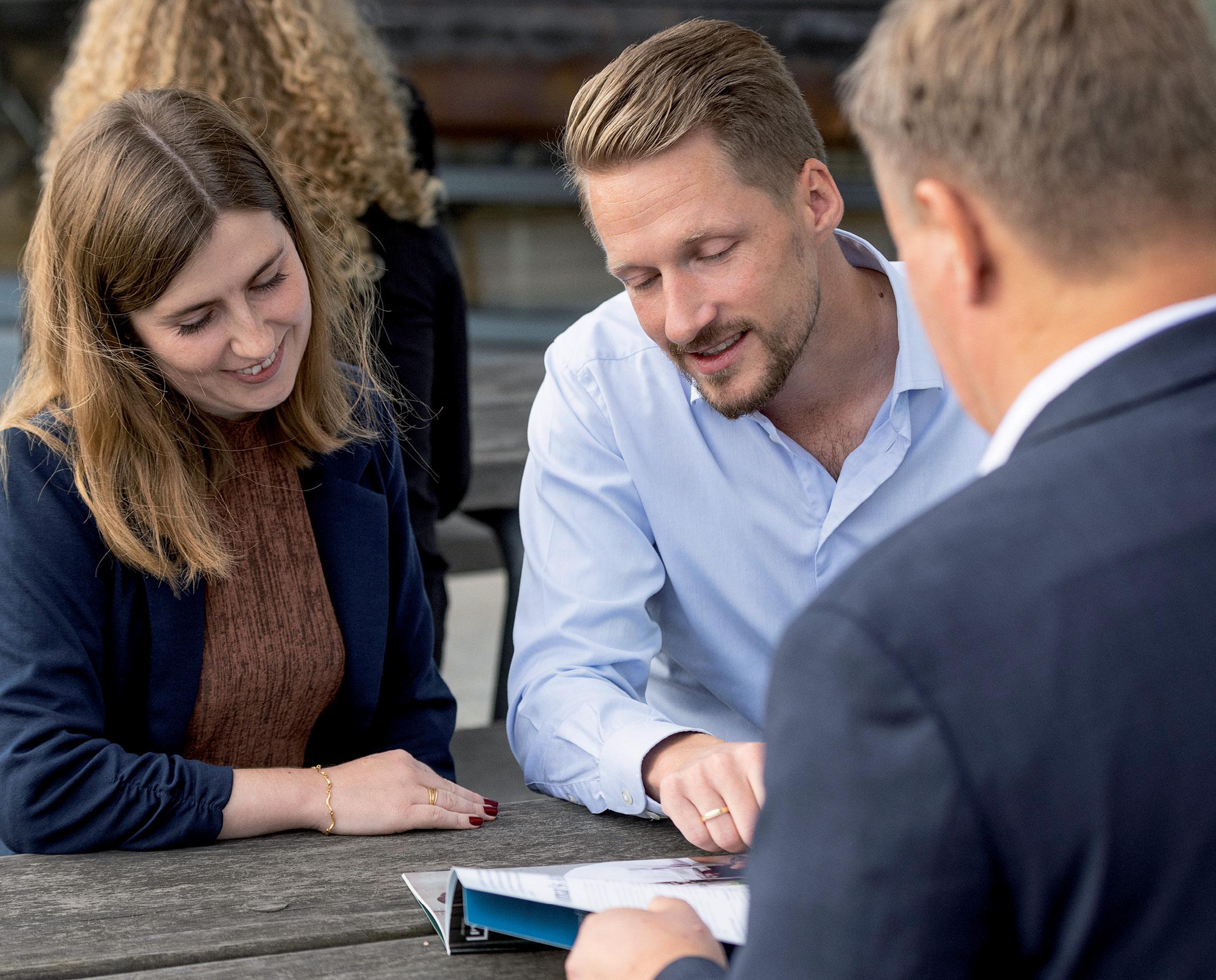
The
In recent years, the UN’s Sustainable Development Goals (SDGs) have formed the foundation for many new companies built on good ideas, which need protection in order to grow. That is why Plougmann Vingtoft organizes the annual donation “IP Matters” in collaboration with the investor network, Danish Business Angels (DanBAN). Every year, IP consulting worth DKK 50,000 is donated to one or more Danish startup companies that work with the UN’s SDGs.
“We cannot save the world with IP consulting. But we can make sure that the talented, Danish entrepreneurs, who are introducing sustainable solutions, get the support they need to turn their idea into a successful business. That is exactly what they will get from this donation,” Finn Strøm Madsen concludes.
IPR Protect Important Details
Sometimes it makes sense to apply for IP protection even though the invention is not all new. Small innovative details make all the difference.
IPR Attract Investors
IP rights are the investor‘s assurance that there is value in the company and that it is tied to the company and not individuals.
IPR Should Be Part Of An EarlyStage Business Strategy
It may take several years before a patent is approved. Therefore, IP rights should be considered at an early stage before the company publishes its products or services.
Find a list of all the stakeholders in the ecosystem in the appendix on page 80-83



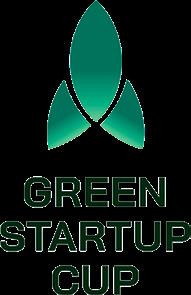
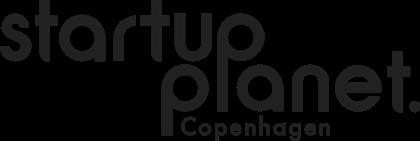
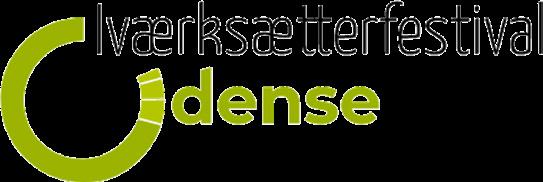









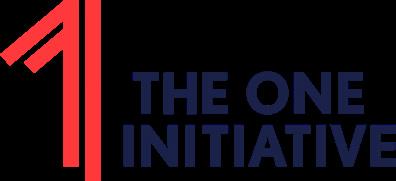









Startupevents are both a fun gathering place and a dead serious part of growing a startup.
Even entrepreneurs have to leave their crunch-cave and attend gatherings in the outside world sometimes. And with good reason.
Startups are never successful without the right people around. And one of the key benefits of startup events such as Aarhus Townhall, Slush’d Aarhus or TechBBQ is just about that: networking.

The best startup events, award shows and competitions bring together entrepreneurs, investors, industry experts, and other members of the startup community. This provides an opportunity for startups to meet and connect with other entrepreneurs, industry experts and investors.
These connections do not just bring new insights but can lead to valuable partnerships, collaborations, and introductions to potential customers or investors.
There are a lot of events, awards and competitions throughout the year in the Danish startup ecosystem. It is easy to get lost and potentially waste a lot of time in transport from one event to another. So do your research, choose your participation wisely, and always make a plan for what you want to achieve.
Startup events provide an opportunity for startups to pitch their ideas and products
to potential investors and customers. Many startup events include pitch competitions or demo days, where startups can showcase and receive feedback from investors and industry experts. Sometimes with incredible prizes in the form of big checks or access to a prestigious accelerator or mentorship.
Winning a pitch competition or an award can be the one thing that gets the ball rolling. Even if it is just your local startup event. It is a recognition and stamp of approval that you can leverage and use towards winning the bigger and next-in-line competition, soft funding, or investor.
In addition, startup events provide access to mentors and advisors who guide and support startups. Many events include mentorship sessions or workshops, where startups learn from experienced entrepreneurs and industry experts.
Furthermore, startup events are a great way for startups to stay up-to-date with the latest trends and technologies in their industry. To get exposure to new ideas and technologies that might be what the startup needs for their idea to

turn out just right. These events often feature keynote speakers, panel discussions, and workshops.
Events can be a great source of inspiration and motivation for entrepreneurs. These events provide an opportunity to hear from successful entrepreneurs who have overcome similar challenges and obstacles. It allows ecosystems to meet and gives a sense of community - a sense of belonging. Or just a sense of fun while hanging out with fellow entrepreneurs.
Aarhus Townhall and Aarhus Slush’D have quickly established themselves as returning meeting places for the Aarhus ecosystem.An important piece in creating a community and a showcase for the ecosystem.

With talks, intimate networking and hard-hitting drumming from Safri Duo, Aarhus showed a new side as host of the startup event Aarhus Slush’D back in October. An event that, like its sister event Aarhus Townhall, was completely sold out - proving just how long Aarhus has been waiting to get its own big startup events.
”Aarhus needs something that brings the community together. People should be able to meet and exchange experiences. Founders need to meet other entrepreneurs who are on the same journey - which happens when you meet physically and informally and can share experiences, ups and downs,” says Mette Tønnesen, director of Startup Aarhus, which is the organisation behind both Townhall and Slush’D.
At the same time, the two events serve as a showcase for what the ecosystem in Aarhus has to offer. Both for the entrepreneurs, who get a storefront to the outside world, but also for investors, corporates and other stakeholders in and around the ecosystem, who can meet the entire ecosystem at once. And the ecosystem needs that.
”We don’t brag enough in Jutland. That’s why we want a meeting place that can help create a we-feeling that Aarhus can do something special. When it comes to Slush’D and Townhall, it’s all about the sense of community: How cool that a city like Aarhus can attract this. There must be a pride in the city and its amazing entrepreneurs, so that the founders themselves will eventually start shouting about the good stories from the community,” says Mette Tønnesen.
Diversity Week (27-31 marts): Connects women who fund, found, and work in startups. Diversity Week creates a space, where the minority becomes the majority and acknowledges challenges and explores opportunities and solutions.
Aarhus Townhall (21. april 2023 + 12. oktober 2023): Gathers the entire startup community for a short stage program followed by beers and informal networking.
VC-Series (Continiously when VC’s are in town): Invites international VC’s to Aarhus to give a short talk and network with a select group of local founders.
• 30. marts: Backing Minds (During Diversity Week)
• Flere er coming up – det kan være, vi lander et par datoer inden din deadline, så hører du fra mig.
More information at www.startupaarhus.com

Startup Aarhus has been instrumental for creating a vibrant and engaged startup ecosystem here. They are amazing at running many get-togethers and knowledge-sharing events during the year. But nothing matches the two big dates - Aarhus Townhall and Slush‘D. There’s tons of high-fives, exchanged contacts and advices. It creates a sense of belonging, like this is your hood and together, we can make each other stronger. To be part of this experience as a startup, means it is less lonely to be on the hard startup journey.«
Investor Christian Vinther FoundermentTownhall and Slush‘D help to gather and attract both national and international people from the community to Aarhus. It is a unique opportunity to showcase the ecosystem - it helps put Aarhus on the map. And as an investor, it provides an opportunity to see more exciting cases and also to connect with other investors, who are often interested in having a local contact.«

REGIONAL











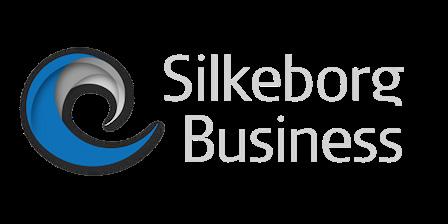




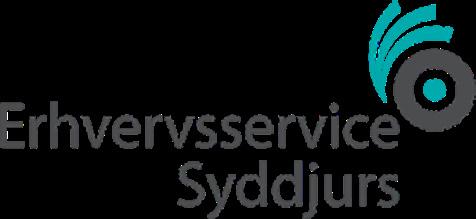


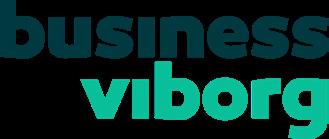




Starting a business might feel like a huge and lonely journey. But it doesn’t have to be like that.
In Denmark, the help is always close by in the form of local business centres and regional cross-municipal business hubs that provide a range of services and support to entrepreneurs, startups, and scaleups.
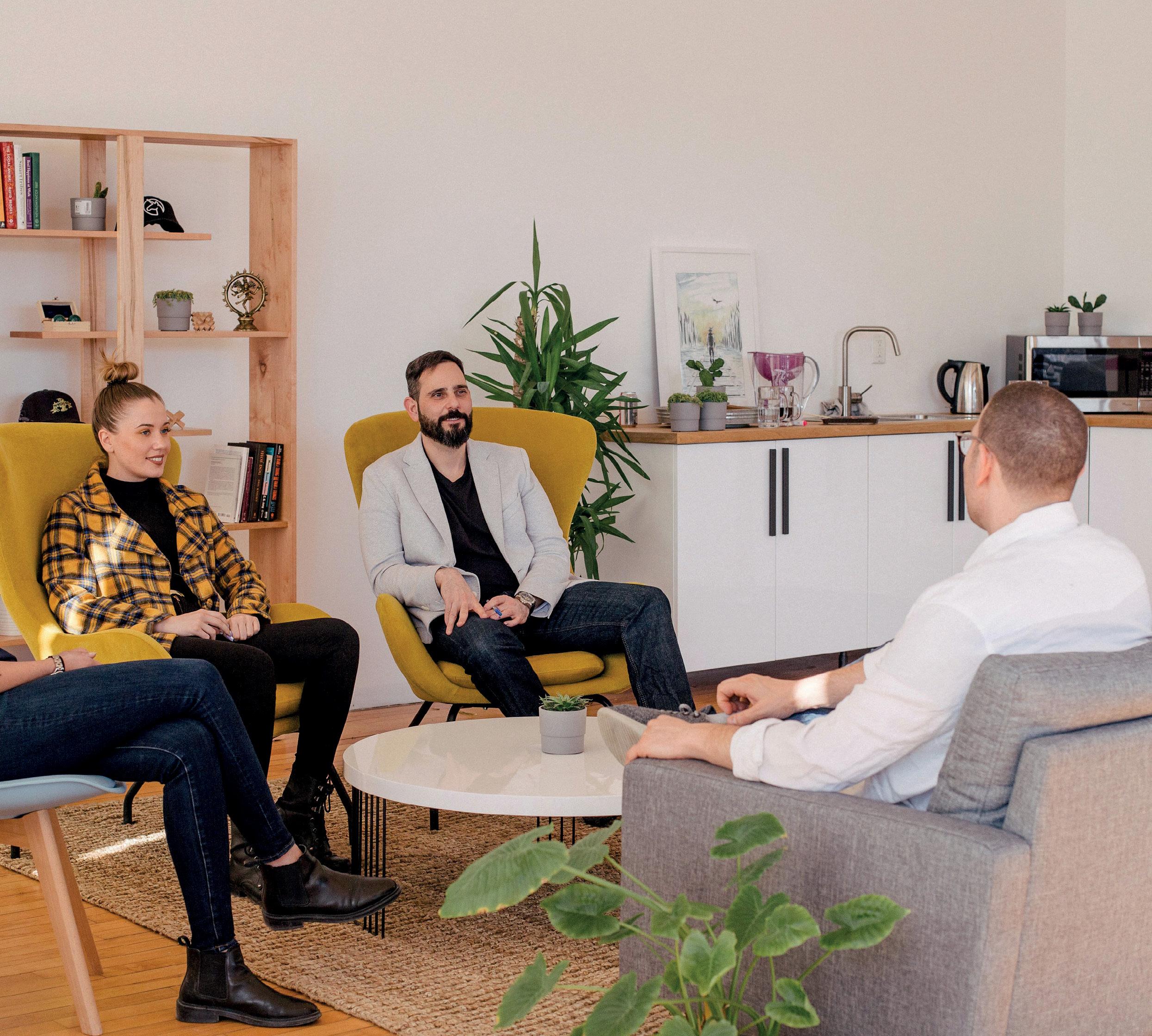
These centers and hubs are designed to provide a supportive environment
for companies of all shapes and sizes to grow and thrive. And typically, they have a lot to offer free of charge as they are usually funded by the public authorities.
Most municipalities in Denmark have a local business service centre for new
entrepreneurs. Their services typically include 1:1 guidance on starting, running and developing your own business, as well as events on basic business topics. Only a fraction of these local business service centres is listed in this guide and only as examples.

In addition, there are 6 regional business hubs in Denmark. These hubs provide
specialized guidance and act as the entry point to the business promotion system for small and medium-sized enterprises.
The service includes for example specialized 1:1 guidance, training and workshops on topics such as marketing and finance, assistance with business development, access to funding opportunities, networking events, etc.



















The ecosystem has become increasingly aware of the issues in recent years and made significant strides to increase gender diversity and support female founders. These initiatives aim to increase access to funding, mentorship, and other resources for female-led startups, and to create a more inclusive and supportive ecosystem for women entrepreneurs. However, there is still a lot of work to be done to address the gender imbalance that exists in the industry.
While female-only initiatives might not sound like the most inclusive path, these initiatives aim at leveling the playing field for female founders. By providing access to funding and resources, they can help address the gender imbalance that exists in the startup ecosystem, and create more opportunities for female-led startups to succeed.
This does not just boost the female-led startups, but helps promote a more di-

verse and inclusive startup ecosystem in general. By highlighting the achievements and success of female founders, these initiatives can help to promote a culture of entrepreneurship and innovation where women feel welcome.
In general, the diversity of the Danish startup ecosystem is improving, but there is still work to be done. All stakeholders are interested in this, as diverse teams are proven to create a more diverse range of startups and technologies.
Time and time again, studies have shown how diverse teams outperform teams who are too much alike. Still, the Danish startup ecosystem is heavily male-dominated.
CO-WORKING SPACES + SCIENCE, TECHNOLOGY & DEV. PARKS Find







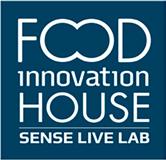


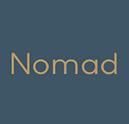


CO-WORKING SPACES


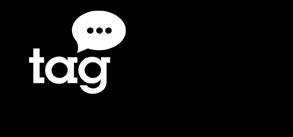










SCIENCE, TECHNOLOGY & DEV. PARKS

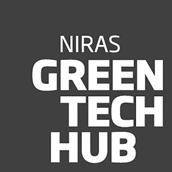
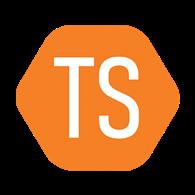










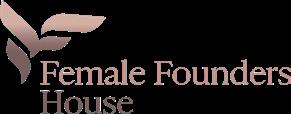

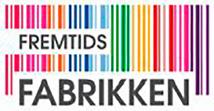

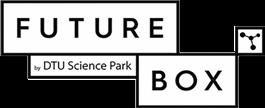






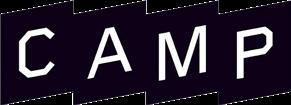



Additionally, coworking spaces can provide a sense of professionalism and legitimacy, especially for freelancers, homebased businesses, and startups. Having a dedicated office space, even if it is shared, can help to separate work and home life, boost productivity, and make a better impression on clients and customers.
The past decades have seen a rise in specialized science, technology and development parks. They are similar to coworking spaces in terms of shared office spaces or private offices on flexible terms. But at the same time, they have a heavy focus on research, innovation, and development typically within a specific sector e.g., tech, food, cleantech, sound, sustainability, and healthtech.
A few examples are TechStation, Ecopark, and Sound Hub Denmark.
In some cases, your parents’ garage might be a great place to start your business. At least according to startup lore. In most cases, a coworking space might be the better option.

Apple started in a garage. So did Amazon, Google and Microsoft. The startup garage has become an embedded part of the mythical rockstar-founder. However, times have changed, and today most shooting stars begin their journey in some kind of coworking space.
Coworking spaces are shared office spaces where freelancers, entrepreneurs, startups, and small businesses rent a desk or a private office on a flexible basis. It is a flexible, cost-effective, and collaborative alternative to traditional office space, which makes it a perfect place to start for companies with limited resources.
Coworking spaces are increasingly popular, and they are located all over Denmark. From the larger cities like Copenhagen, Aarhus, Odense, and Aalborg to the smallest surf towns on the West Coast of Denmark.
A range of amenities such as internet, coffee, and meeting room is often includ-
ed, and more importantly: Access to a community of like-minded professionals. Some coworking spaces also offer additional services such as events, networking opportunities, and mentorship programs.
One of the key benefits of coworking spaces is the flexibility they provide. Users can rent a desk or an office on a daily, weekly, or monthly basis, allowing them to scale up or down as their needs change. This is particularly beneficial for startups, who may not have the resources to commit to a long-term lease – and do not know if they need space for 5 or 50 employees in the coming year.
The biggest benefit, however, is often the sense of community and collaboration they foster. Coworking spaces bring together a diverse group of professionals from different backgrounds and industries, providing opportunities for networking, idea-sharing, and collaboration. This can be great for motivation as there is an energy of productivity in the air when you’re in an office full of driven people.
A lot of the science, technology and development parks are located close to the universities or other higher education institutions and also offer access to lab facilities, tools, workshops, storage, etc. as they are designed to support research, innovation and development.
This can be especially helpful for entrepreneurs and startups with limited resources who might never have had access to this kind of equipment elsewhere. And industry-specific startups get to mingle with a community of industry experts who already know and operate in their industry.
• Better office space at a lower cost
• Meet like-minded entrepreneurs - with the opportunity to work in industryspecific working communities.
• Specialised facilities: Labs, 3D printers, workshops, storage, etc.
• Specialised networks: Investors, industry professionals, potential customers, etc.
Sponsored: This article is published in collaboration with TechStation

At Hellerup station, a former post office has been converted into a 2,300 square metre melting pot for engineers, entrepreneurs and startups, all working to develop the innovative solutions of the future.
It really looks like a postal building.
And indeed it is. But today, the former post office has been transformed into TechStation, an incubator and entrepreneurial community where stamps and envelopes have been replaced by highly specialised spaces for innovation and development for hard tech startups.
The industrial premises are buzzing with activity. On a daily basis, over 60 people work in the building, including 13
Mikkel Mørkegaard Station manager, TechStationstartups. There are engineers, entrepreneurs and investors running in and out of workshops and offices with gadgets and instruments in hand. And that is the whole point, says Mikkel Mørkegaard, the station manager.

“All our entrepreneurs are curious about each other. They ask questions, share their own solutions, ask the hard questions and always help if they can. It’s a place where committed people come together to geek out on technical solutions - and that gives a great energy,” he says, while he shows around the large dining room where the startups have left their workstations for a while to have lunch together.
The
Five years ago, construction of TechStation began in the old post office (built in

1922), which is why some of the startups have their offices in the postmaster’s apartment, while others are located in the attic, in an open-plan office landscape built on the beautifully decorated dry attic.
But it is not just the beautiful surroundings. As a transport hub that connects the researcher from DTU in Lyngby with the commercial talents from CBS in just a few minutes, it is an extraordinary office community for many hard tech companies .
“Most entrepreneurs are so focused on their startup that they don’t want to waste a lot of time travelling from workshop to office. Here you can service all parts of your business in one place. It creates a synergy in the building that is difficult to find in a large industrial neighbourhood,” says Mikkel Mørke- g-
aard, showing around the floor, where there are only a few steps between the workshop and the computer.
The man behind TechStation is Jens Peter Bredholt, who 22 years ago founded the R&D engineering consultancy Kapacitet. Today, the company is headquartered at TechStation and is the heart of the house. It is through Kapacitet that startups get access to professional prototyping, testing and production facilities and a wealth of experience in hard tech.
Clean tech startup Ambient Carbon has benefited from this. Since 2020, they have been collaborating with Kapacitet on the development of an invention that eliminates methane emissions from cow and pig stables, among other places. Last
year, the startup moved into TechStation to turbocharge its growth journey.
“It’s a huge advantage for us to be so close to the engineers who help us with product design and drawings. It makes it easy to focus on our product development. In addition, it makes sense to be close to the other companies in the house - some of which we may even collaborate with over the coming years,” explains David S. Miller, CEO of Ambient Carbon.
The idea of synergy runs throughout the house. That is why TechStation Invest was established in 2019; an evergreen fund and investment group that invests in hard tech startups with high professional capacity and smart money.

“The investors are not people who just want a return on their money. They are
genuinely interested in getting the product off the ground. Therefore, their most important contribution is the capital as much as the professional sparring, the network and the feedback they can provide in the product development phase,” says Mikkel Mørkegaard.
Today, TechStation Invest has invested around DKK 10 million in five startups, some of which have had or have offices in the building. And that type of synergy is growing.
“We hope that one day the building will be full of people we have also invested in. The dream is to turn TechStation into a social and professional startup hub. A place everyone knows and has been, and where some fantastic innovative solutions and products have been developed over time,” explains Mikkel Mørkegaard.
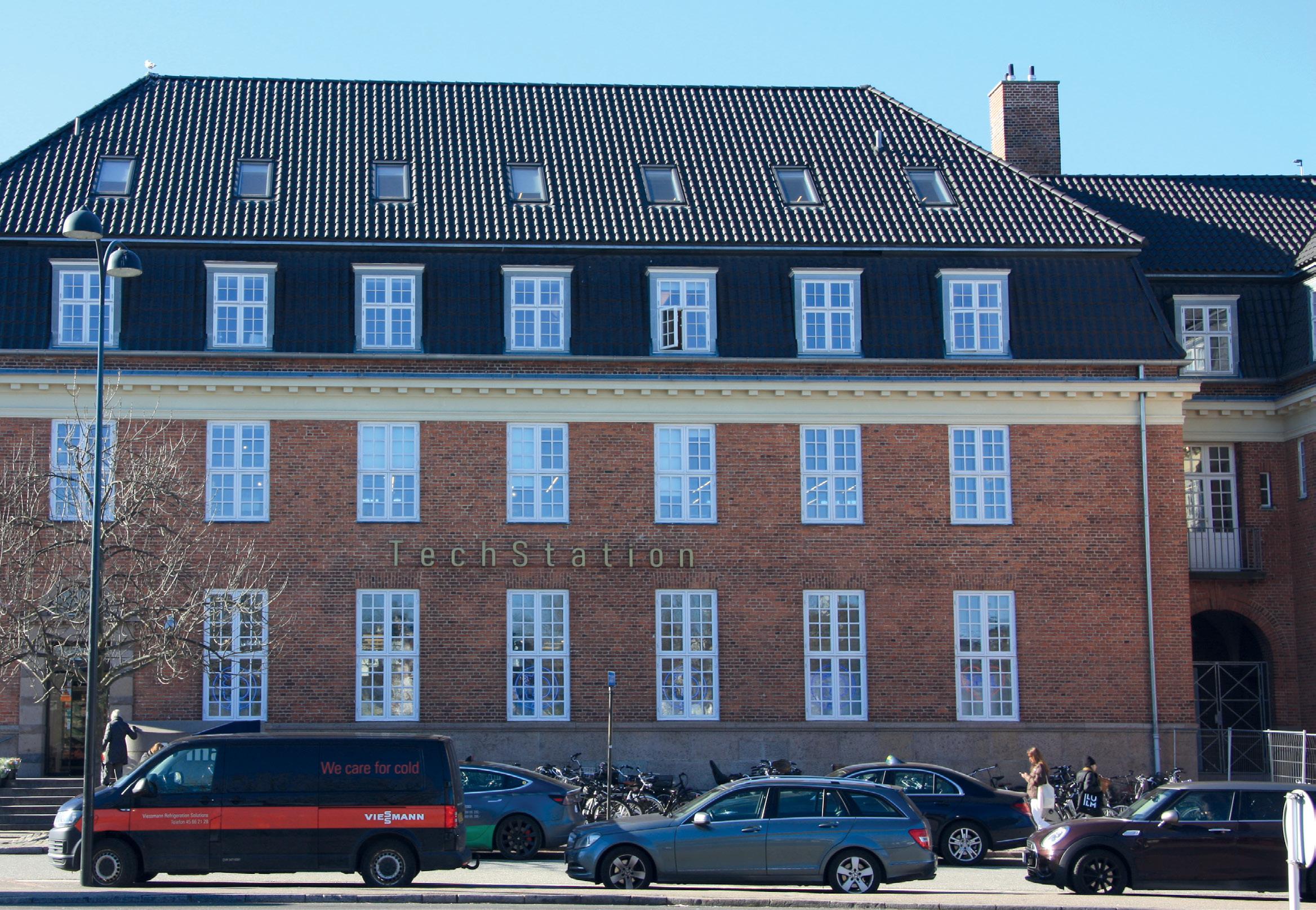 TechStation, a former postal building, is today an incubator and entrepreneurial community with highly specialised spaces for innovation and development for hard tech startups.
TechStation, a former postal building, is today an incubator and entrepreneurial community with highly specialised spaces for innovation and development for hard tech startups.







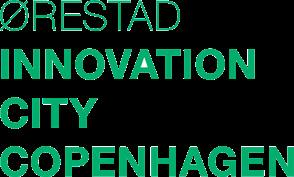




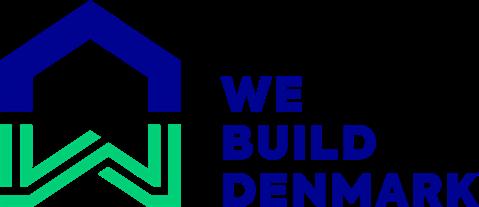













When your CVR-number is registered, your business account ready and you have started selling, the broad startup-advice might not be enough anymore. But fear not: the industry specific clusters are thriving and most of them have a lot to offer for startups and scaleups.
Danish clusters, such as Odense Robotics, Hub for Innovation in Tourism, and Danish.Care are networks of companies, entrepreneurs, investors, and other stakeholders within a particular industry or sector. These clusters are designed to provide a supportive environment for startups to grow and succeed within their specific niche.
Denmark has 13 national cluster networks. These are part of the Ministry of Higher Education and Science and the Danish Business Promotion Agency’s cluster program, and have thus been designated as the 13 official clusters within Denmark’s strongest and most promising business and technology areas.
In addition, there are a number of other similar clusters in other promi-
sing business, technology and geographical areas.
The clusters know the ins and outs of their industry and are therefore able to provide a unique network, support, insight and resources for startups within their field. This can include access to funding opportunities, mentorship and guidance from experienced entrepreneurs, and collaboration opportunities with other companies and startups within the cluster.
Industry clusters provide a platform for startups to connect with potential customers, partners, and investors. These clusters often host events and networking opportunities, such as conferences, meetups, and demo days, which can be a valuable way for startups to showca-

se their products and ideas to potential investors and partners.
Another benefit of business clusters is that they provide access to specialized knowledge and expertise within a particular industry or sector. For example, Odense Robotics is focused on the robotics industry, and provides startups with access to industry experts and mentors who have deep knowledge and experience with this industry.
Finally, clusters can help to create a more vibrant and innovative ecosystem within a particular region. By bringing together companies and entrepreneurs within a particular industry, clusters can create a network effect that leads to more innovation, collaboration, and growth. A network effect that tends to get stronger over time.

Office space + 6.000 m2 flexible facility / workshop space
Networking & events
Green acceleration program
Boost your early Startup with green ambitions
Networking events
1:1 feedback on business plan and green potentials




Free desk for 3 months
Apply here: ecopark.dk/startup-camp
Odense Robotics StartUp Fund helps early-stage robotics and drone startups from Denmark and abroad scale their vision into a successful business. Send your pitch now and join the next generation of robotics disruptors.

Odense Robotics StartUp Fund helps early-stage robotics and drone startups from Denmark and abroad scale their vision into a successful business. Send your pitch now and join the next generation of robotics disruptors.




Funding
Access founder-friendly funding. The microloan is issued according to a milestone plan. You pay back when your company can – and retain all ownership rights.
Incubation
Get your very own workspace at our leading incubator, where you can develop your technology using prototyping facilities and advice from robotics specialists.
Mentoring
Learn from the best in Denmark’s robotics industry. You’ll gain advice from a team of mentors –leading industry figures, technical experts and business coaches.
Network


Gain exclusive access to a prestigious network of entrepreneurs, investors, and seasoned industry leaders. You’ll be at the heart of Denmark’s strong robotics community.
Interested? Send your pitch today
www.robotstartupfund.dk
And the potential for many of the innovative solutions is not only in Denmark, according to Anders Lyck Fogh-Schultz.
“There is a huge need in many countries for technology to play a greater role. Therefore, we are often not dealing with Danish solutions to Danish problems, but with technology that is relevant across international markets. In that pursuit, we help startups get off the ground and begin their startup journey right,” he explains.
• Danish.Care currently has 135+ member companies.

• CareTech CHALLENGE introduces startups to the ecosystem and is also a showcase where participants exhibit at the huge event Health & Rehab and large Danish conferences, as well as the opportunity to participate in international exhibitions,and export promotions.
It is not always easy to break through the sound barrier as a startup. That is why Danish.Care - the Trade Association for Assistive Technology and caretech is on a mission to make it easier.

“The industry exists to develop solutions and technologies for the benefit of society and well as individuals. It is a fact that there will be a shortage of thousands of healthcare professionals in the future. While we cannot replace them, we can support them with innovative technology. That’s why we’re working to help startups get off to a good start with new solutions,”
says Anders Lyck Fogh-Schultz, Network Manager at Danish.Care.
The association has therefore initiated the accelerator program CareTech CHALLENGE. The purpose is to turbocharge the development of the next generation of Danish assistive devices and care-technology with international potential.


“We are an organic and very handson accelerator that does not require 40 hours a week. But we have such a large network, and know the care and health sector, and the customer field, so well that we can give companies a good opportunity to get a foot inside the market early,” says Anders Lyck Fogh-Schultz.

Over 12 months, the startups in the challenge get a wealth of opportunities, including exhibitions, sparring on storytelling, sales,marketing and market access,feedback on product and strategy and knowledge sharing and networking with the strong field of Powered by partners.
• The program is in its 3rd year, 59 startups have applied for the program – so far and is continuously attracting new partners offering knowledge sharing and network.
• CareTech CHALLENGE has a running admission.Membership at Danish. Care is required.
• Powered by partners include Amazing Hall, Health & Rehab, KEYSTONES, DTU Skylab, IDA Crowdfunding, Danish Association of the Physically Disabled, The Camp and the Ministry of Foreign Affairs of Denmark, The Trade Council
With challenges, a startup accelerator and close collaboration with the established industry, the Hub for Innovation in Tourism is pushing for more innovative tourism. And the opportunities to find a market in the industry as a startup are many.
Tourism is bare feet in the sun, a cosy cottage and quality time with the family. But it’s also a huge industry.
In Denmark, tourism is the fourth largest export industry, generating more than DKK100B in turnover annually. Globally, the figures are even more staggering: Tourism contributes $5.800 trillion to the global economy and continues to grow rapidly.
This is also evident in the global startup ecosystem, where tourism startups have seen significant investments in recent years - e.g. in the UK, where traveltech startups raised £358M in 2020.
The trend hasn’t really taken off in Denmark yet, but the potential is clearly there.
“It’s a huge blue ocean for many solutions because the industry is behind on digital transformation parameters. That’s why we want to help entrepreneurs who
can challenge the status quo. We need to ensure that innovation in the industry continues to make it easy, convenient and enjoyable to be a tourist in Denmark,” says Heidi K. Dahl Larsen, Head of Secretariat, Hub for Innovation in Tourism (HIT).

Covers the whole chain
Tourism has yet to become a hyped vertical for startups. That’s why HIT wants to support entrepreneurs all the way:
challenges in knowledge institutions, an accelerator for startups, and advice and sparring with established companies that want to invite innovative solutions into tourism.

The chain starts in knowledge institutions like universities, where HIT presents concrete challenges from tourism to students, challenging them to solve them. In this way, students get to work with a concrete demand in the market, and this has already proven to be a viable model.
“After the first challenges in the autumn, we had three applicants to our startup accelerator who had born their business idea during our challenges. So we can see that serving them a concrete industry challenge is inspiring and provides a good starting point for a sustainable idea,” says Heidi K. Dahl Larsen.
The startups that are actually accepted into the accelerator are at very different stages of their growth journey. Here, they get the chance to develop the idea further and test it in the marketplace in collaboration with the experts from the
industry - who may eventually become customers or partners.
“Tourism is an industry that is very seasonal: there is simply nothing that can go wrong when you are in the middle of high season and running at maximum capacity. That’s why it’s not just about getting corporates to become cus-
Challenges: The pipeline of entrepreneurs starts in the knowledge environments. Here, HIT puts tourism on the agenda through challenges, where students are challenged to solve specific needs in the industry - which can later become an actual, knowledge-based startup.
Accelerator: Every six months, a new cohort starts in the HIT accelerator, which supports entrepreneurs‘ entry into the tourism industry. Here they get access to sparring, knowledge and networks.
Corporates: HIT facilitates contact between startups and the established tourism industry. Partly to strengthen the startups‘ network in the established industry, but also to mature the established tourism industry to make use of these new solutions from startups.
tomers, but also about sparring early on so that entrepreneurs know what they need to address if they are to succeed in the market,” says Heidi K. Dahl Larsen.

TripAdvisor and Airbnb are two of the shining beacons of traveltech that have had a major and direct impact on the industry globally. But HIT is also very much looking for startups that don’t necessarily see themselves as suppliers to tourism from the start.
In fact, only 16 per cent of the 88 startups that have gone through the tourism accelerator are from traditional tourism sectors, while the rest are ICT companies, for example.
“The rest come from other industries but want to test whether their solutions match a need in tourism. There are many good examples and cases that have got new business out of going into tourism. That’s why we also spend a lot of time screening and scouting for startups that are active in other industries and that we think might match a demand in the tourism industry,” explains Heidi K. Dahl Larsen.
These include Flow Loop, which had targeted its shower solution, which recycles 80 per cent water and saves 70 per cent energy. And startup The New Sort, which offered waste sorting widely. Both now have go-to-market strategies for the tourism industry.
Even if the companies don’t see themselves as a tourism startup, to begin with, we can help with the knowledge, insights and networks that can turn this into a big new business opportunity for them«
Heidi K. Dahl. Larsen Head of Secretariat, Hub for Innovation in TourismIn 2022, the number of tourist overnight stays broke a new record with an increase of 12.2% compared to 2019, according to VisitDenmark, Denmark’s tourism organisation. Foto: Stefan Thorndahl Foto: Bamdej Communication el Keyvan Thomsen Bamdej



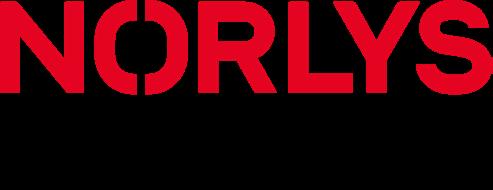












plex, high-risk innovation, social and environmental impact or projects aiming to bring more diversity and inclusion to the startup ecosystem. In other scenarios soft funding is a great way to leverage your early stage investors money.
Benefiting society at large in some way is often a part of soft funding. However, soft funding is not altruism: startups are expected to build a viable business and most soft funding programs also require co-financing from your company in the form of cash or inkind contributions. In addition, many soft funding programs offer mentorship, training, and other types of support to help startups grow and succeed.
If you have not got your own fortune to spend, investors are often the weapon of choice. But innovative early-stage startups should also consider their soft funding opportunities.

Soft funding is a form of non-equity funding that provides financial support to startups without requiring ownership or equity in the company. It is typically provided by government agencies, non-profit organizations, and other institutions that support entrepreneurship and innovation - often with lofty goals of supporting the development of new products and services, growth and job creation in certain fields.
There are a lot of soft funding programs with different focuses but some of the
activities that you can receive soft funding for are e.g., research, development, pilot tests, acquiring new equipment, and hiring external consultants.
Soft funding provides startups with access to funding that they may not be able to obtain from traditional sources such as business angels or venture capital. This can be particularly true for early-stage startups, which may not have a proven business model or revenue stream yet, which makes investors value their company very low.
Soft funding is often aimed at areas which might be too risky for traditional investors in their early stages - e.g. com-

There are a lot of soft funding opportunities; at a regional, national, Nordic and European level. In addition, there are several Danish commercial foundations and private companies that support entrepreneurship in the form of grants of various sizes.
This means it can be both difficult and resource-intensive to find the relevant grants and programmes before preparing an application which might not be successful.
Fortunately, there are several ways to get help. For example, there are highly specialised consultancy firms like Nordic Innovators that can help identify and subsequently prepare applications for Danish (e.g. Innobooster), Nordic, and European funding programmes.
It is almost impossible to build a business without money. Usually, it takes time to develop and prove both the technology and strategy before paying customers start to generate revenue for the company. This makes initial funding crucial.
Innovative startups have good opportunities to finance their development through soft funding. Nordic Innovators helps navigate the jungle of public funds and application forms.
Developing new technologies and bringing groundbreaking business models to market are an expensive task. That is why a wealth of Danish and European funding schemes have been established to help innovators without requiring ownership in return - so-called soft funding. But it can be a difficult and time-consuming job to find the right support programmes, especially as a startup with very limited resources in terms of both time and finances.
“However, all startups should consider soft funding. There are not equal opportunities for everyone, and it usually requires a certain level of innovation. It is also not necessarily something you should prioritise - but everyone should at least think about the possibilities,” says Kristoffer Riis.
As partner and CCO of Nordic Innovators, a consultancy agency that special-


ises in helping startups and companies raise funding from Danish and European funding programmes, he has in depth knowledge about the opportunities.
A long-term funding opportunity
With 10 years of experience, Nordic Innovators has a broad overview of the many funding opportunities in Denmark and abroad. They use this overview as a basis for a strategic discussion with startups, so that their development plan can be matched with potential soft funding opportunities.
“What does the roadmap look like and what do you want to do in the future? We want to look a bit further ahead because if you need money now, soft funding is not the right way to go. It is not quick money, so it is about looking a year or two ahead and seeing what developments are in the
• Tada Medical: DKK 50 million in EU funding (Eurostars & EIC Accelerator)
• IO Interactive: DKK 1.2 million (Innobooster)
Airflight: approx. DKK 5 million (Innobooster)
pipeline and getting it planned in terms of applications,” says Kristoffer Riis.
Once the plan is in place, Nordic Innovators also has experience in translating the plans into concrete applications, so that the chance of getting funding in return of the hours invested is as high as possible.
“Our customers have knowledge in their field, and our job is to get that knowledge into an application. It is a written process, and sometimes it also involves pitch training - but in both cases, we help assure the quality of the application so that the chance of success is as high as possible,” says Kristoffer Riis.
• Nordic Innovators is a consultancy firm specializing in applying for soft funding and public support.
• The company‘s 65 consultants are based in offices in Copenhagen, Aarhus, Bergen and Malaga. From here, they help young startups at the idea stage as well as large multinational corporations.
• For startups and smaller companies, Nordic Innovators offers a full-service model where they help throughout the process at a fixed price. In addition, they receive a small percentage if the application is approved.
Contact info: info@nordicinnovators.dk
www.nordicinnovators.com
FOR INNOVATIVE ENTREPRENEURS, STARTUPS AND SCALEUPS YOU GET A grant of 25,000 DKK
Exposure to the Danish startup ecosystem
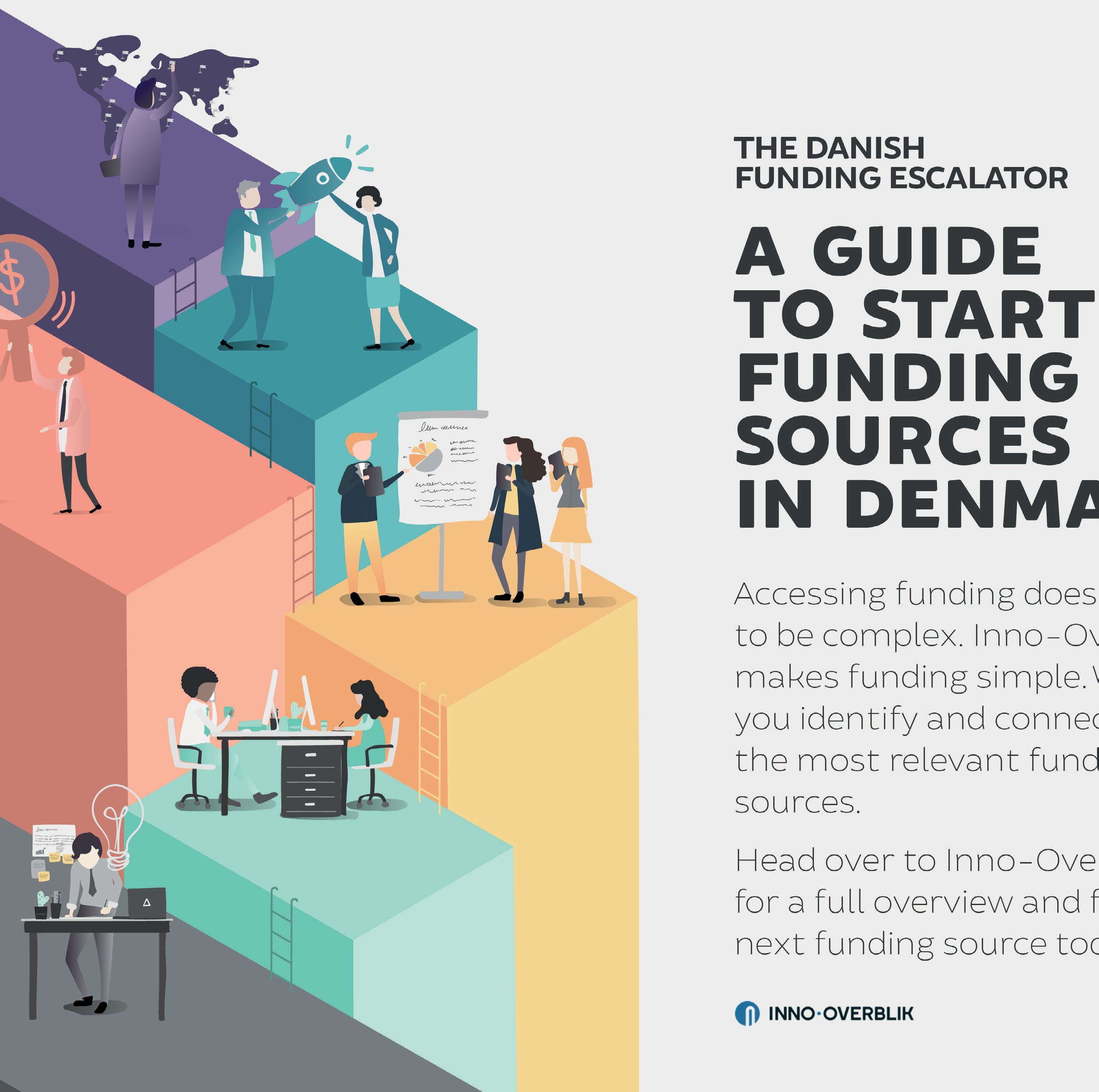
Access to Heyfundings Investor Matchmaking Service
PREVIOUS WINNERS
• WARD 24/7
• Levitate
• Textile Change
• SHEworks Atelier
• Coastgrass
• Trebo
• DoLand
• Swap Language
• HEMBOO
• Sirène
• Cogo
• Bellyfood
• Crowdbook
See upcoming application deadlines at heyfunding.dk
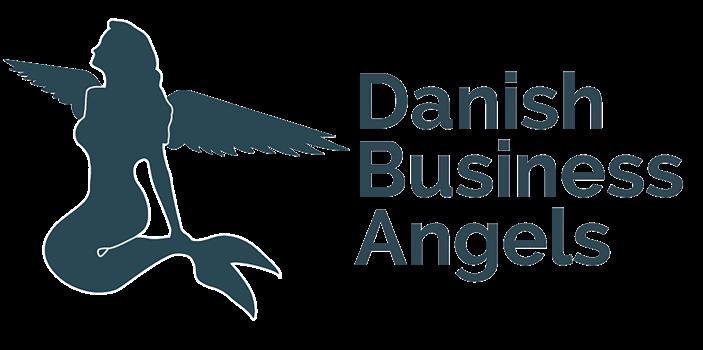

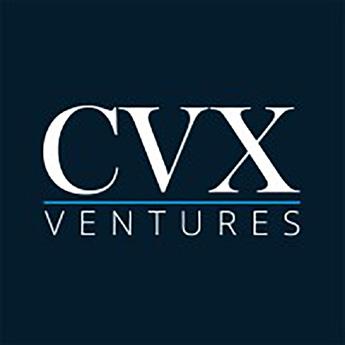








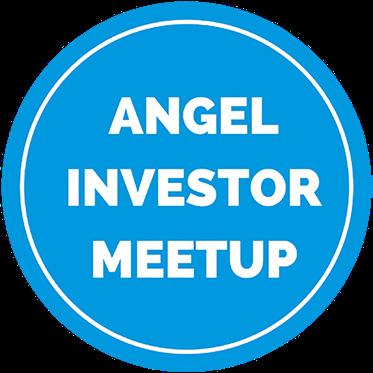

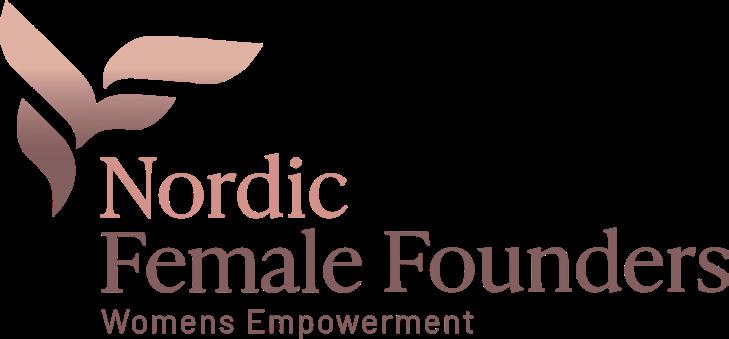
The obvious reason to befriend business angels is cold, hard cash. A Danish business angel typically invests between DKK100,000-1,000,000 per startup. Business angels also often invest together in investment syndicates which could consist of a group of just a few individuals and up to sometimes 25 business angels.
Business angels are often willing to invest in startups at an early stage when other sources of funding, such as venture capital, may not be available. But as angels typically invest their own money earned through a successful business career, they are also able to bring a lot more to the table.
Startups can apply to business angel networks by submitting their pitch deck and then get a chance to pitch in front of the angel investors in the network. Some business angel networks have several hundred members so it is a very fast way to connect with a lot of potential investors.
Business angel networks provide access to a network of experienced entrepreneurs and business people turned investors. These individuals can provide mentorship, guidance, and connections that can be invaluable to startups. For example, business angels may be able to introduce startups to potential customers, partners, or other investors.
Friends, family and fools: The 3 F’s are often the first lifeline for startups when it comes to funding. When this supply line is exhausted, startups often turn to business angels for additional funding.
There are an estimated 4,000-5,000 business angels in Denmark. A lot of these business angels are organized in business angel networks. The Danish startup

ecosystem has seen several new business angel networks over the last few yearsincluding networks for female business angel investors.
Business angel networks consist of individual investors who provide funding and support to startups. These networks are typically composed of high-net-worth individuals who are looking to invest in high-risk, high-reward ventures.
Furthermore, business angel networks often have a diverse range of experience and expertise across different industries and sectors. This can be particularly beneficial for startups, who may need specialized knowledge and skills in order to succeed.
Another benefit of business angel networks is that they can provide a level of validation and credibility for startups. By having the support and backing of experienced investors, startups may be more likely to attract additional funding or attention.







Most startups are built on an urge to change something - often by combining new ideas and technologies. In that way, startups are not too different from the seven so-called GTS institutes in Denmark (known as Research and Technology Organizations (RTO) on a European level).
The seven approved institutes are all part of the Danish efforts to create an innovative and competitive business community by accelerating the utilisation of new knowledge and technology.
The GTS institutes provide research and development services to companies, including startups. Especially research-intensive projects and startups can gain a lot by getting their supportincluding access to specialized knowledge and expertise, as the institutes have a wide range of technical capabilities, knowledge and state-of-the-art facilities and equipment.

The GTS institutes are independent, non-profit organizations that are funded by the Danish government and industry partners.
The GTS institutes mainly collaborate with highly innovative and research-driven companies and startups. This means that startups working with GTS institutes should also have a clear strategy for their intellectual property (IP).
This includes patents, design protection and trademarks. No matter the need, there is a wealth of resources and helpful guidance to be found - e.g. at the Danish Patent and Trademark Office.
IPR is however an incredibly complex arena, and if the application process is too challenging it’s possible to team up with specialised advisors from a full-service IP consultancy firm like Plougmann Vingtoft for the entire process and strategy.
Internationalisation is hard - especially as a startup with limited resources. Innovation Centre Denmark helps through its seven centres across the globe in collaboration with the Danish clusters.
”We are a strategic offer for the startups in the clusters that think internationally. We are the ecosystem’s extended arm out into the world, creating sector-focused joint initiatives with clusters and accelerator programmes,” says Camilla Sofani Bartholdy and continues:
Danish startups often have to be “born global” to succeed and many dreams of a breakthrough in the giant markets of the US, India or China. But internationalisation is complex when you’re in Denmark with a limited budget for expansion.
Innovation Centre Denmark (ICDK)
helps ambitious startups get started. The centre supports startups in Danish areas of strength and ensures matches with players around the world through its seven selected hotspots in Munich, Boston, Tel Aviv, Silicon Valley, Shanghai, Bengaluru and Seoul.
“In Denmark, we understand ‘Born Global’ as being present in Europe. But the mar-
ket opportunities are quite different if you dare to move outside Europe. It is a big and difficult step, and it may be wise to start with a pilot project in Seoul, Bangalore or Tel Aviv before taking the full leap. And we can help with that,” says Camilla Sofani Bartholdy, Executive Innovation Manager at Innovation Centre Denmark.

From its centres around the world, ICDK connects startups with strong local partners - access that can be hard to get on your own without a public body like ICDK behind you.
An extension of the clusters
ICDK typically takes delegations of several startups to different parts of the world in collaboration with Danish cluster organisations such as Odense Robotic, Danish Life Science Cluster, CLEAN and DigitalLead. The clusters identify the ambitious entrepreneurs, while ICDK finds the right international partners to help test and demonstrate projects in a new, international context.
”Startups have to have wild ambitions and think internationally early on. We like to take projects that are already happening in partnerships at home in Denmarkwith the clusters, the GTSs or the incubation environments at universities, so you have a group of Danish players who get some knowledge and experience and get matched out in the world - and then come home and use each other from there.”
• Munich: Proptech, Quantum Technology, Robotics & Automation.
• Boston: Bioconvergence, Biosolutions, Human-AI Collaboration in health care.
• Tel Aviv: Hospital innovation, cyber security, quantum technology, food technology.
• Silicon Valley: CCUS, quantum technology, entrepreneurship, space technology.
• Shanghai: E-commerce and social shopping, electrification of transport, industrial IoT.

• Bengaluru: CCUS/green hydrogen, circular economy/food and agriculture, new technologies.
• Seoul: Metaverse for Real (K-Tech), Towards 6G, Quantum Technology
ICDK is established in cooperation between the Ministry of Education and Research and the Ministry of Foreign Affairs.

ries of webinars for entrepreneurs to give a basic introduction to the different types of rights. The Patent and Trademark Office also has customer service consultants who provide free and non-binding guidance.
“There may be obstacles in the process. Both financially, but also in terms of how to access knowledge in an easy way when you need it. We help to reduce these barriers,” says Rune Bjørn Lorentzen.
If you find out that you can use IP rights, it requires subsequent strategic work to make them value-creating. For example, you should consider whether they should be used to find partners, in communication with customers or towards investors.
“It’s a journey. You have to start by finding out that IP exists. Once you know that, you have to find out what it means for the company. Only then, you can start using the rights to create value,” says Rune Lorentzen and adds:


Every entrepreneur should look into what intellectual property rights can do for them. And the experts at the Danish Patent and Trademark Office are ready to help.
As a new entrepreneur, there are 1,000 things to consider, and intellectual property rights (IP) such as patents, trademarks and designs are rarely at the top of the list. But maybe they should be.
Companies with at least one patent, registered design or trademark generate on average 20% more revenue per employee compared to companies that do not own IP rights.
“The most important thing is for entrepreneurs to realize that IP rights exist and can affect their business. You can use them to protect an idea from competitors or to attract investors. But it’s also about being careful not to infringe the rights of others,” says Rune Bjørn Lorentzen, Head of Unit for National Policy at the Danish Patent and Trademark Office.
It can be difficult to know which rights are relevant. That is why the Danish Patent and Trademark Office is organizing a se-

“IP rights are not relevant for everyone, but you should consider the possibility of protection. The website of the Danish Patent and Trademark Office is a good place to start. Here you can, for example, take a rights test, get general information on price and process, and be inspired by others who have used rights in their business.”

What does the ecosystem say?
Don’t wait for others to protect your idea before you. Have a structured approach to IP rights and show that you are serious about your business.«
Find help getting started with IP rights: www.dkpto.dk
Rune Bjørn Lorentzen Head of Unit for National Policy at the Danish Patent and Trademark Office






Essentially, crowdfunding is a method of raising capital for startups through small contributions from a large number of people - the crowd. However, the method has developed into a diverse subset of ways to crowdfund which can be used from smaller €10.000 test initiatives to multimillion euro equity deals.
Danes and Danish companies raised DKK300 million from crowdfunding in 2021. It is typically done through online platforms. The platforms allow the crowd to browse and support a range of different projects. The reward for investing can be a product, equity in the company or a fixed return on the investment like a loan.


No matter the reward, crowdfunding comes with some key benefits. It provides access to a large pool of potential investors. This can be particularly valuable for startups that may not have access to traditional sources of funding, such as venture capital. Additionally, crowdfunding allows startups a way to validate their product or service by
gauging interest and demand from the market early on.
Crowdfunding can also be a way for startups to build a community around their product or service. By engaging with a lot of small investors (sometimes many thousands) and sharing their story, startups can create a loyal following that help drive future growth and support.
However, crowdfunding rarely succeeds by just throwing a campaign onto some platform expecting investors to come. One of the main challenges is to stand out among the large number of projects and startups vying for funding on these platforms. It can be a time-consuming process that requires significant preparation and planning. Startups will need to create a compelling pitch, develop a marketing strategy, and set realistic funding goals in order to be successful. Additionally, various ways of crowdfunding come with their own legal and regulatory challenges which might add to the complexity.
Crowdfunding can essentially make or break startups - especially early stage startups, who might be off to an incredible start if they succeed in selling their first million worth of products before even properly launching their company.

Organic Basics
Was one of the Danish pioneers when it raised $20.000 to produce its first batch of sustainable clothing back in 2014. The startups used the reward-based method where backers got a reward - e.g. a pair of socks - in return for their early investment.
The brand has used Kickstarter multiple times since.
LabFresh
Has used reward-based crowdfunding on Kickstarter as a strategic marketing and fundraising tool since the brand‘s inception. Through four successful campaigns, each with new clothing products, they have raised €830.000 and amassed 10.000 backers.
LuggageHero
Is one of few Danish startups to successfully raise money through equity crowdfunding. Two times the startups raised rounds on the platform Seeds with an aim to expand into new markets. Totalt investment: €2.111.765 from 1.617 backers.
Ironically, such incredible success can also lead to their demise before they get started if they fail to deliver on the overly successful campaign that exceeds their manufacturing capabilities. Just search for “Coolest Cooler”.
There are different types of crowdfunding which can be tailored to meet the specific needs of different types of startups and projects. By choosing the right type of crowdfunding and developing a strong marketing and outreach strategy, startups can raise the funds they need to grow and succeed.

In reward-based crowdfunding, backers provide funding in exchange for a reward, such as early access to a product or service, exclusive merchandise, or other perks. This can be a good option for startups that are looking to build buzz and generate early sales.
In equity crowdfunding, investors provide funding in exchange for a stake in the company. This can be an effective way for startups to raise capital while also building a community of supporters who are invested in the success of the company.
Donation-based crowdfunding
In donation-based crowdfunding, backers provide funding out of goodwill or a desire to support a cause or project. This can be a good option for charitable organizations or creative projects that are looking to raise funds without offering a specific product or service in return.
In debt crowdfunding, investors provide funding in exchange for the promise of repayment with interest. This can be an effective way for startups to raise capital while also building a track record of creditworthiness.
In hybrid crowdfunding, startups may use a combination of the above methods to raise funds. For example, they may offer equity in exchange for a specific amount of funding, and then offer rewards to backers who contribute beyond that amount.
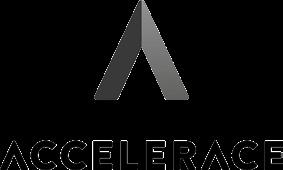


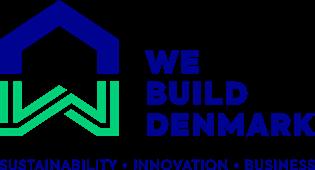
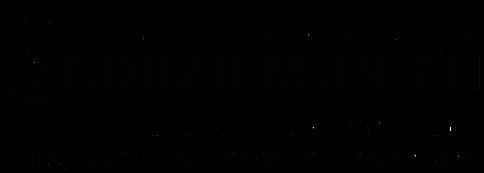



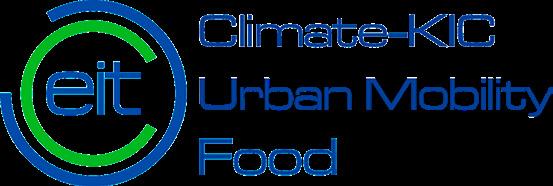


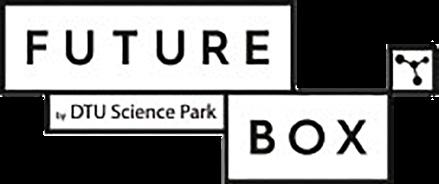
















Startup incubators and accelerators are programs designed to support and nurture startups, helping them develop their ideas and bring their products or services to market.
Incubators are programs that provide resources and support to early-stage startups, often at the ideation stage.
They offer a range of services, including mentoring, training, office space, and access to funding. The goal of an incubator is to help startups develop their ideas, refine their business plans, and build their teams. The Danish startup incubators are usually also connected to a fixed location such as a university, coworking space, or a science, technology and development park.
Accelerators, on the other hand, are programs that help startups to grow and scale. They typically last 3-6 months and do not require you to move into a specific location. Accelerators focus on startups that have already laun-

ched their products or services and are looking to expand. Accelerators offer similar services to incubators, but they are often more focused on helping startups to access funding and scale their businesses quickly.
Scale alongside likeminded people
Both incubators and accelerators seek to make the road to success less bumpy for the startups they accept. This is mainly done by offering mentorship and support - e.g. BioInnovation Institute, Soundtech Accelerator and Vækstfabrikkerne, who accelerate startup growth through deep industry knowledge. Startups in these programs typically work closely with experienced entrepreneurs and business leaders, who can provide
guidance and advice on everything from product development to fundraising.
Another benefit of incubators and accelerators is access to resources and funding. Many programs offer office space, equipment, and access to funding and other resources, which can be invaluable for early-stage startups that may not have the resources to invest in these
things themselves.
Additionally, incubators and accelerators offer a sense of community and camaraderie that can be particularly valuable when the startup life seems tough and lonely. By working alongside other like-minded entrepreneurs, startups can share ideas and experiences, and build relationships throughout their journey.

Be part of an innovative coworking environment with other international and highly skilled sound professionals. You get access to advanced sound test facilities, a unique craft cluster and network of specialised skills in sound and sound-related areas.
WHETHER YOU ARE AN ESTABLISHED CORPORATION, A SME OR A STARTUP YET TO SCALE, SOUND HUB MIGHT BE THE RIGHT PLACE FOR YOU


Become part of a strong entrepreneurial community with access to a professional workspace, a network of ambitious start-ups and business development.
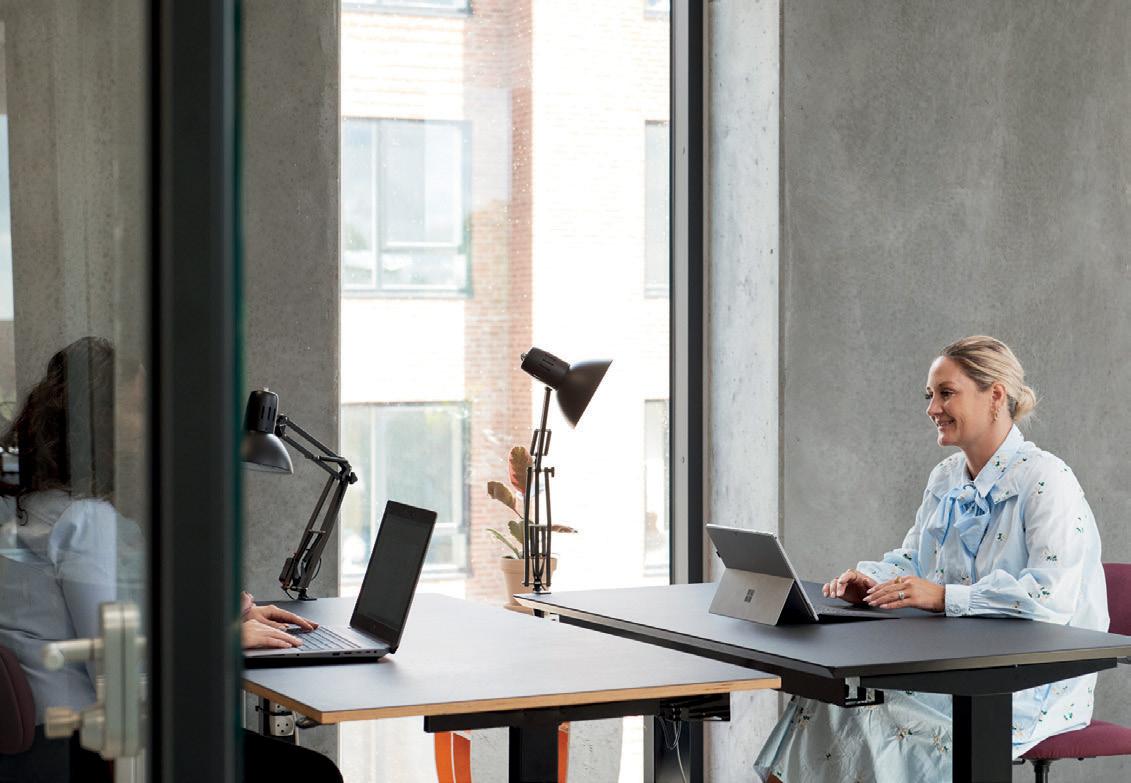
Sponsored: This article is published in collaboration with BioInnovation Institute

Danish health research is world-class. But not enough of it is translated into entrepreneurship and startups, according to BioInnovation Institute, which works to mature life science and health tech startups and promote the Danish ecosystem.

Denmark is a world leader in many areas of healthcare: life science, medicine and biotechnology. Here, large Danish companies set the direction for the rest of the world.
But in health tech, we are lagging behind the countries we normally compare ourselves with. Several studies show
that we hatch too few startups compared to the scientific level of Danish health research. But we can change that if we create the right culture, says Jens Nielsen, researcher, professor and CEO of the BioInnovation Institute.

“We are here to change that. We believe that we need to educate the next generation of entrepreneurs in the
Jens Nielsen CEO, BioInnovation Institutehealth sector - including health tech. Because even though Denmark has a good ecosystem for startups, too little research is currently being translated into solutions that benefit patients and society,” he explains.
In 2018, the Novo Nordisk Foundation established the BioInnovation Institute (BII) and in 2021 BII became an independent commercial foundation with commitments of up to DKK 3.5 billion over 10 years. The mission is to develop a world-class Danish health tech and life science ecosystem and catalyse the commercialisation of new solutions through startups and spinouts.
Maturing for the market
BII offers a 12-month incubator and accelerator programme that helps researchers, early-stage startups and established companies to mature their product and idea, develop a business plan, establish
networks and raise capital.
“Innovation is strongest when it is demand-driven. That’s why for many health tech entrepreneurs, it’s important to understand the market mechanisms early on in the process. There can be a lot of good ideas that make life easier for people, but if you want it to actually become a business and a product that makes a difference, you have to work with the barriers that exist in the market,” says Jens Nielsen.
In particular, the commercial sparring has been vital for the startup Ampa, which is behind a new innovative solution for people living with an ileostomy.
The company’s founders Marie Filippson Parslov and Cecilie Ammitzbøll both come from the healthcare sector and have benefited from BII’s programme for startups.

“At BII, the financial support comes with training in business development, personalised sparring and access to a large
network, a combination that has worked really well for us. As healthcare professionals, we have a deep knowledge of the problem we want to solve, but we have no experience with business models, IP or regulatory strategies. We have gained this in a relatively short time and have so far been successful in developing Ampa - it has been a steep but fantastic learning curve,” the two entrepreneurs explain.
To encourage more researchers to turn their research into entrepreneurship, the BioInnovation Institute (BII) organises an annual award to recognise researchers working at the intersection of life sciences and entrepreneurship. The academic world plays a major role in the health of the ecosystem.
“What you often see in such successful ecosystems is that it starts with role models, which creates more role models and so on. In these places, it has become part of the culture that universities naturally also incubate companies and researchers become entrepreneurs. We would like to strengthen this approach in Denmark,” Nielsen explains.
The development is slowly under way. Entrepreneurship has been a focus area at universities for several years now, while the major Danish hospitals have embedded innovation centres in their daily workflow. All in all, it paints a positive picture, says Jens Nielsen.
“We have a huge potential in Denmark and I believe Copenhagen will be an epicentre for health tech startups in the future. We have all the competences and ingredients: top-class international research, a world-leading healthcare system and a tradition of healthcare industry. If we can capitalise on this, we can become a European beacon in this field.”

• 75% of startups in BII are first-time founders
• 80 startups supported in total
• 71 million euros in aid granted to companies by BII
• 382 Million euros raised by BII companies
With a fantastic pitch in Pumpehuset, Ampa Medical won BII’s Demo Day 2022






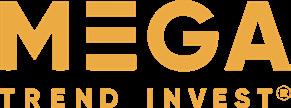







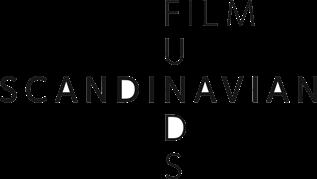
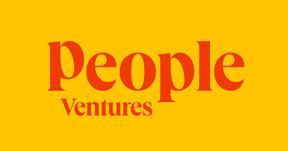






















Venture capital (VC) is a type of financing that is provided to high-potential startups aiming for rapid growth and significant returns on investment. VC funds are typically raised from private and institutional investors such as pension funds, fund of funds, family offices, and wealthy individuals which allows them to invest significant sums.
The Danish startup ecosystem has seen several new VC funds over the last few years. In addition, more international venture capital funds are looking to Denmark and the Nordic region for deals. This led to 110 venture investments into Danish companies in 2022 - amoun-
ting to €1bn invested.
One of the key features of venture capital is that it is high-risk, high-reward financing. This means that investors expect a high rate of return on their investment, but they are also willing to take on the risk of investing in startups that may not succeed. This approach is what makes venture capital a critical source of funding for startups.
Seeding for the venture
Pre-seed and seed capital is typically the first funding that a startup receives. This is the capital that is required to get a company off the ground and launch its initial products or services. Pre-se-

ed and seed capital is often provided by angel investors, family and friends, venture building studios, or early-stage venture funds specialized in priming the startup for the venture-journey.
Venture capital is typically provided to startups that are looking to scale their businesses quickly. Investment rounds after initial seed is usually used to fund the growth of the business.
VC firms typically invest in companies that have a solid business plan, a talented management team, and a unique product or service that has the potential to disrupt the market. They provide funding in exchange for an ownership stake in the company, which
Once a startup has found its perfect recipe for growth, they often turn to venture capital to get the fuel that will really get the rocket ship to take off.
allows them to take share in the success of the company as it grows.
In addition to funding, venture capital investors often provide strategic guidance and support to the startups in which they invest. They may provide access to a network of contacts, assist with hiring key personnel, and provide guidance on strategic decisions.
However, venture capital also comes with an expectation of rapid growth. This can put pressure on startups to focus on short-term results rather than a building for long-term value and sustainable growth. For that reason, it might be a great idea for startup to seek advice from professionals before raising the first investment.
However, venture capital remains an important source of funding for startups. It provides startups with access to the capital, expertise, and networks they need to grow and succeed.
Pre-seed: Typically less than €250.000, and often provided by friends and family, angel investors, or early-stage venture capital firms.
Seed: Typically between €250.000 on and €2,5 million, and provided by angel investors or seed-stage venture capital firms.
Series A: Typically between €2,5 million and €10 million, and provided by venture capital firms that specialize in early-stage investments.
Series B: Typically between €10 million and €30 million, and provided by venture capital firms that focus on growth-stage investments.
Series C: Typically between €30 million and €50 million, and provided by venture capital firms that specialize in later-stage investments.
Series D and beyond: Typically €50 million or more, and provided by venture capital firms that focus on large-scale expansion and preparation for an IPO.
It‘s worth noting that the actual amounts raised in each round can vary widely based on a number of factors, including the industry, the location of the startup, the stage of the business, and the current economic climate. Additionally, some startups may skip certain rounds or raise larger or smaller amounts depending on their unique circumstances.

If Denmark is to maintain its leading position in the global maritime sector more entrepreneurs are needed. This is the view of The Danish Maritime Fund which has earmarked DKK 30 million for funding startups that are looking to digitize sea transportation and maritime industry.
Denmark has been amongst the biggest maritime nation for centuries. Despite our modest size the leading position is built on generations of ingenuity, creativity, and a tireless ability to think innovatively.
But global competition is intensifying
each day. And if Denmark is to remain a leading player it requires innovation and development of solutions. This is why more entrepreneurs and startups are needed in developing the massive potential in the maritime sector, according to The Danish Maritime Fund, which works to support growth and innovation in the Danish maritime sector.
“Danish ingenuity and entrepreneurial spirit are high. But entrepreneurs and startups in other sectors need to be aware that good ideas could probably also be angled in a maritime direction. If we don’t keep innovating we will fall behind in the global competition,” says Lotte G. Lundberg, Man. Dir. of the Danish Maritime Fund.

In 2022, the fund launched a two-year campaign with DKK 30 million earmarked seed-funding of Danish maritime startups. It was a great success in the first year and the fund received more applications and supported far more startups with seed funding than expected.
“We are ready with a helping hand and risk capital. We are a high-risk fund and our success with seed funding is reflected in this. We welcome all good ideas and brave entrepreneurs in the maritime sector,” says Lotte G. Lundberg.

In total, 17 Danish startups were funded in 2022, particularly in areas of digitalization, automation, and green transition – amongst which are an autonomous sailing offshore wind turbine, a certified circular economy for ship recycling and a floating offshore power generator vessel based on wave energy.
But the The Danish Maritime Fund is ready for more.
“We are risk-averse and ready to help Danish projects that do not yet have a market-ready product or service in place. We would much rather cater to one pitch too many than too few, says Lotte G. Lundberg.
Only requirement is that the startup should be a Danish based and registered company.
Sponsored: This article is published in collaboration with Black Capital Ventures

There are plenty of challenges in the world. That is why young venture studio Black Capital Ventures is working every day to make the future look a little brighter than it did yesterday.
“We don’t get involved in projects that make the world a worse place than it was yesterday. Therefore, we only invest our time and capital in startups that make a difference - primarily in healthtech and greentech, which are the two

areas where we can create the most impact,” says Stefan K. Johansen, CEO and founder of Black Capital Ventures.
In many ways, the venture studio is a little different. Because BCV likes to work with founders who have first-hand experience with the problem they want to solve or improve. This approach creates strong startups, Johansen explains.
“There is a big difference between founders with a good idea versus founders who have experienced a problem
first-hand. The latter have such a strong desire to make a difference that they get the best conditions to succeed. This usually results in a strong company with a clearly defined purpose.”
Founders who are passionate about the cause
Many of the founders of BCV’s portfolio companies come directly from the field, with no previous entrepreneurial experience. That is why the venture studio
BCV specialises in building startups with founders who have practical experience of the problem they are trying to solve. This provides the best conditions for success and creating impact in the world, according to the venture studio.
specialises in building companies from scratch - everything from organisational structure to business plan and scalability - together with the founder.
This was also the case when Steffen Yndal, a former paramedic and founder of the startup HATO Medical Technologies, became frustrated over several years that ECG measurements in ambulances were displayed and transmitted to the hospital in a hopelessly old-fashioned way. This could be done much better, he thought, and in 2021 he approached Black Capital Ventures to solve the problem.
“As a new entrepreneur, there are countless things to learn from scratch. I believe that many first-time entrepreneurs don’t get very far because there is simply no single recipe. BCV specialises in this process and supports entrepreneurs with the necessary knowledge and resources to take a project from idea to finished product and on to success,” explains Steffen Yndal.
From there, BCV and HATO quickly set about developing, designing and producing a prototype for a new ECG methodology that visualises the heart’s key figures, analyses what is wrong
and automatically relays the critical information from the ambulance to the cardiologists at the hospital. The parties hope to introduce a regulatory approved solution to the market in 2024.
In the field of healthcare, BCV has proved particularly effective. Currently, the challenges are growing, and many public healthcare organisations are crying out for new solutions and technologies that
• Founded in 2018 by Stefan K. Johansen

• 6 portfolio companies, 80% of which are in the healthcare sector
• Focus on medtech, healthtech and greentech
Stefan K. Johansen CEO and founder of Black Capital Ventures
can make a difference in everyday life.
“The healthcare system is under pressure because we as a population are living longer with multiple and chronic diseases, while at the same time there is a shortage of healthcare professionals. Therefore, the healthcare system needs to look at new solutions that can make everyday life more efficient. Fortunately, the potential for innovation is huge,” says Kristina Refstrup Sørensen, founder of the startup BeSammen.
As a nurse at Herlev Hospital, she found that the physical grief groups at the hospital were insufficient. Therefore, together with BCV, she is developing a platform that offers patients small digital and intimate grief groups - even after they have been discharged from the hospital.
This solution only emphasises how BCV, in collaboration with the practical knowledge of its founders, can result in new innovation, says Stefan K. Johansen.
“An idea is only good when you can execute it. We take the founder’s sketch and establish a plan for how to build a prototype as quickly as possible using the strong technical competences we have in-house. We like to say that we take founders from the drawing board to the market.”

Sponsored: This article is published in collaboration with Deloitte
How should we raise capital? Should we go to venture funds or business angels? And should we seek equity or debt financing? A lot of questions usually arise when a fast-growing company needs to raise capital.
This is why it is important to get the right independent advice. Especially in the critical scaling phase, where poor preparation and hasty decisions can leave their mark on the organisation several years later. This is the view of Deloitte, which since 2017 has specialized in advising growth companies on their growth journeys.
“Advising Maersk is not the same as advising a small IT company. Startups and scaleups have a much greater need to take a pragmatic approach. As an advisor, you have to be able to navigate this and get the company to ask themselves: What do we need to have in place as a minimum and how should we prioritise all the good ideas?” Says Mads Fauerskov, Partner at Deloitte Fast Growing Companies.
Over the years, Deloitte has built up and specialised through a dedicated department for growth companies. Here, Deloitte Fast Growing Companies has
a total of 66 experts advising on both accounting tax, and starting up in new markets. However, it is just as much when companies need to raise capital that Deloitte adds value.
‘We help our clients to build the finance function to support growth. This can be anything from the startup of markets and warrant programmes, for advice in raising capital. Clients today are looking for much more than just an accountant and an annual report once a year. They want an adviser who is close by and has been there and done it before. We try to have all the necessary services to support the client throughout the growth journey,” explains Mads Fauerskov.
Raising capital is not something you should do with your eyes closed. If the valuation becomes unrealistic or misses the expected turnover, it can ultimately damage the credibility of the company.
“Many clients come with the idea of raising, for example ten million, and when they leave here, they may only need to collect eight million. Or, conversely, they need to collect more than originally intended. It is very important to get a sober overview of how to structure the level
of capital,” says Mads Fauerskov.
That is why Deloitte often builds the company’s business model in Excel. A good excel model simulates balance sheet, liquidity, bank debt, the most important KPIs, such as ARR, MRR, CaC, LtV. Even shifts in VAT payments are taken into account. All in all, to ensure that everyone has a realistic picture of what the growth entails in terms of capital requirements.
“A financial model is very important when raising capital so that the exact capital needs are known. Almost every time we advise, we deliver an eye-opener. If the owners give up too many shares in the beginning, it can become a shackle that they carry with them far into the future,” says Fauerskov.
Regardless of who you turn to when fundraising, be it the venture fund, the bank or current investors, most actors have a vested interest or hope for a particular outcome. So who do you listen to?
“Our first task is to consider: What is best for the company? The fact that we are neither founders, the bank or the investors is the most important argument in favour of our impartiality. We advise with the general rule that what is best
Rash decisions can end up haunting companies later on in the growth journey.
for the company is best for everyone,” explains the Deloitte partner.
Although the capital market looks difficult for many at the moment, funds are still available. But the requirements for growth companies are evolving.
“It has become essential to have a
sustainable business model that can survive without funding. Companies need to show that they can survive even if they don’t get new capital,” says Mads Fauerskov and continues:
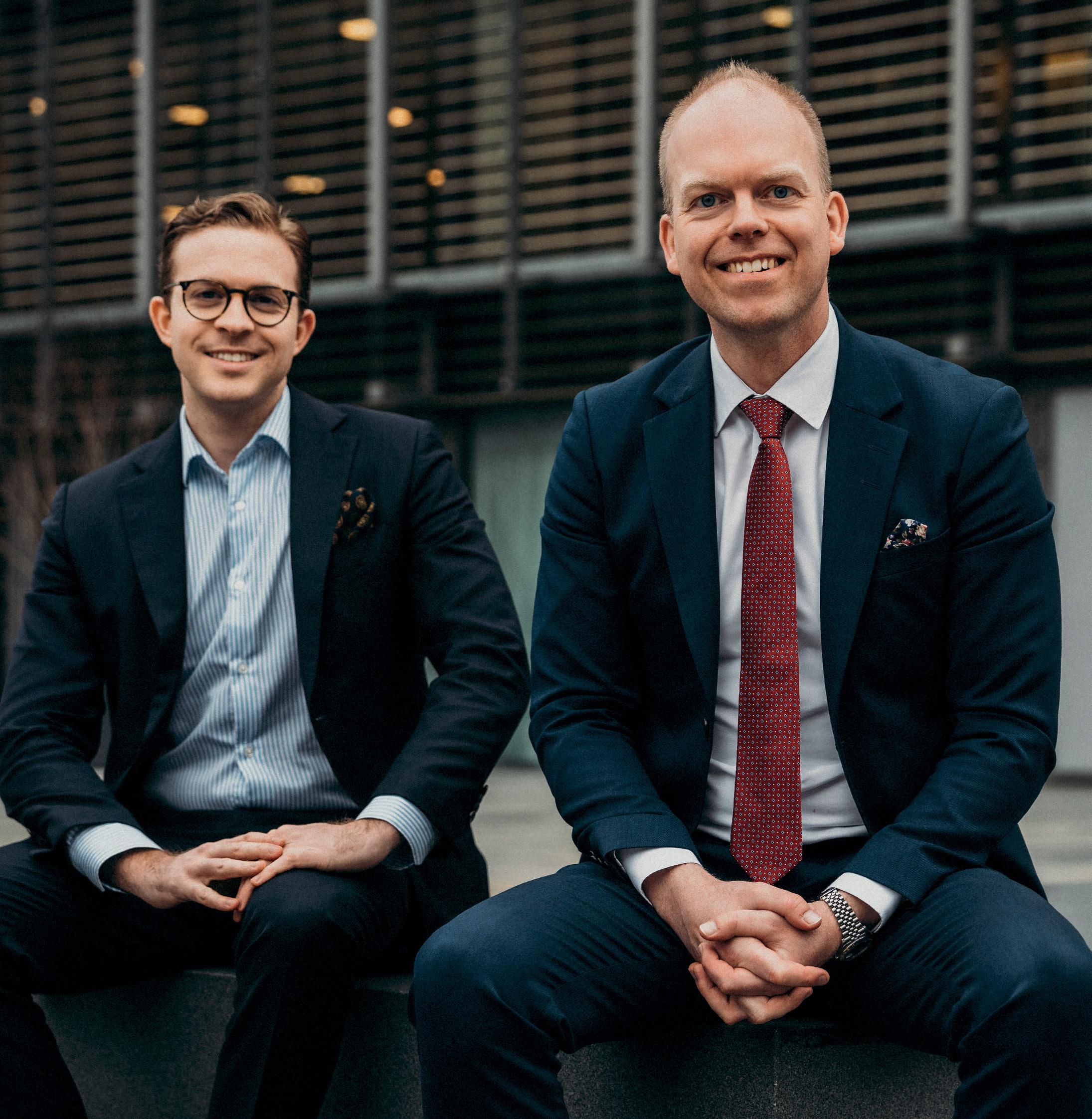
“This is why it is particularly important to have a partner who dares to say
the difficult things. For example, that the company should not raise more funds from current investors or the debt factor is not at the right level. You can thus benefit greatly from having an adviser who only has in mind that things are put together correctly.”














(IPO). The amount of funding provided in late-stage capital is substantial, often ranging from tens of millions to hundreds of millions of euros.
Late-stage capital allows companies to continue to grow and expand beyond their current revenue, even after they have exhausted their early-stage funding. This can be especially important for companies that are operating in highly competitive markets, are facing significant regulatory or technological challenges or simply want to corner the market before their competitors do it.
Because late-stage companies have already established a track record of success and are often generating significant revenue, the risk associated with investing in these companies is lower than it is for early-stage investment. Oftentimes it’s not a question of failure or success, but rather how big the success will be.
Larger and more established companies with more predictable revenue streams make late-stage companies attractive to investors, as they are more likely to provide steady returns on investment.
If you have created a machine that spits out €5 every time to put €1 into it, you obviously want to feed the machine as many coins as possible.
That is essentially what successful, fast-growing companies are. However, it usually takes time for their successful products and marketing funnels to turn the €1 into €5. This means they need investors with big wallets to keep growing at a high pace - even after establishing
revenue and gaining unicorn status.
Huge investments into established, fast-growing companies like this is often referred to as late-stage capital. A company has already achieved significant growth and has established itself as a leader in its industry.
Late-stage capital is used to fund the next stage of growth for a company, which often involves expanding into new markets, acquiring other companies, or preparing for an initial public offering
Late-stage capital can be structured as equity deals or loans and is typically provided by institutional investors, such as private equity firms, hedge funds, or large venture capital firms. Additionally, investors typically provide competencies and networks to the companies they invest in. Therefore, some investors focus on specific industries and typically invest to help with growth activities, internationalisation, generational change, management buyout, turn-around, etc.
While the amount of traditional latestage capital has grown with the startup ecosystem, new opportunities are also on the rise. Opportunities like an IPO at growth or venture stock markets or secondary investors like Nordic Secondary Fund.

Nordic Secondary Fund is the only fund in the Nordic region, and among the largest in Europe, to invest in “second-hand” shares between investment rounds - so-called secondaries. This provides liquidity for early investors, founders and employees alike - and has proven to be a lucrative business for the fund.
When a fast-growing startup announces a new investment round, it’s usually earmarked for growth. The founders give up a percentage of their ownership and the money goes into the company where it is spent on new employees, more marketing and international expansion.
When Nordic Secondary Fund (N2F) invests, it’s different. The new fund buys shares from founders, employees or early investors who want to sell out before the whole company is sold. So it is the previous owner who gets money in his pocket when N2F invests, not the company.
“If there’s a CTO who quits, a CEO who wants some money off the table, or an early investor who wants out of their investment, we can come in. We only buy ‘used’ equity,” explains Peter Sandberg,
Peter Sandberg Co-Founding Partner of N2Fwho is Co-Founding Partner of N2F along with Frank Lyhne Hansen.

The fund seems to have found a gap in the market that both the fund’s investors and the rest of the ecosystem have been missing: since 2018, N2F has raised two funds totalling €140M from 375 private investors, invested in 30 companies and already sold four of them back at a profit.

Gives the founder room for manoeuvre
Startup growth is supposed to be explosive, but still, the journey from idea to selling a successful company can easily take 10 years. On successful growth journeys, the ownership stakes held by co-founders and early investors become worth millions on paper. Paper money that’s hard to pay the rent or buy a new car with.
If they want to turn some of that value into cold hard cash before the 10 years are up, N2F comes into play. The fund typically invests around €3-5M for a small stake in mature scaleups that have raised a Series A round of at least €5M. Wee-established scaleups that still have growth potential. The portfolio includes GoMore, Goodiebox, Varjo, Kilo Health, Acimo and Klarna - of which the last two have been sold again at a profit for N2F.
the company is built on and sold later as a unicorn. They still get a lot of money from the sale, but on the way to the exit they also have a little more luxury with their husband or wife and children,” says Peter Sandberg.
Angels with bigger muscles
N2F buys into companies between traditional investment rounds - and typically at a discount of around 25 per cent to the latest valuation.
“We don’t do the pricing ourselves. We look at what the price was last time and then get paid a premium for taking on the risk, in the form of a discount that also reflects the price of illiquidity that unlisted shares have,” explains Peter Sandberg.
I do it because it‘s great fun and super inspiring. The fund is doing well with some great returns, but there‘s also a cool purpose that has an impact: there are some founders who can sweeten their lives. There are some early risk-takers who can derisk and invest somewhere else. It does something for the ecosystem that wasn‘t there before.«
“You want hard-working founders, but they don’t get any less hard-working by having room to manoeuvre. Instead of selling their company now for 200 million, they can sell a small stake to us, so they get some money here and now - but at the same time have ownership when
While early-stage business angels look for startups that can return their money 20-30 times, N2F seeks to invest in companies that return 3-5 times on a sale. Peter Sandberg knows the role of an angel investor very well, as he was one of the most active angels in Denmark before founding N2F. And that might be why the fund has more than 100 business angels from DanBan behind it, who see advantages in joining the large syndicate and getting some different investment opportunities than they normally have.
“We buy into companies that are done with business angels. They’re talking to venture funds or close to private equity. They’ve typically raised DKK 50-100m or much more. So it’s probably more about
when there’s an exit and how big it is,” says Peter Sandberg, adding that it’s also a different calibre of companies than business angels normally invest in.
“You would never get near companies like GoMore, Klarna or Kilo Health on your own. And if an angel can get exposure to 20-30 of those companies, it’s a whole different ballgame - they’ve already proven they’re a good business.”
After four lucrative exits in the first fund, N2F expects that there will be companies in the portfolio that are not going to be profitable. Therefore, the fund also spreads the investments in each fund across 20-30 companies to reduce sensitivity.
Peter Sandberg does not see N2F as a competitor to business angels, venture funds or private equity. They will own a maximum of 10 per cent of a company - in some cases down to 0.5 per cent - and as a minority investor they do not seek board representation, but are in close ongoing dialogue with the companies, updating the fund’s investors quarterly on developments in each company.
He sees the fund as an important complement that helps increase liquidity in the entire ecosystem - because when founders or early investors get money back, it is often reinvested in the ecosystem.
• Founded in 2018, Nordic Secondary Fund is the first and only fund in the Nordics to exclusively invest in secondaries. The Private Equity “Secondaries” asset class is an attractive alternative investment with high yields and is a source of diversification for investors to mitigate overall risk.

• Nordic Secondary Fund acquires secondary stakes in companies that have completed a Series-A capital raising from venture capital or corporate venture. Companies with a proven business model. N2F we aim to invest at a substantial discount to the latest funding round at expect to see a 2x-5x upside and an exit within 5 years.
• The fund has invested in 30 companies – including GoMore, Varjo, Kilo.Helath, TransferGo, Bob W.Funderbeam, Klarna, Pixieray, Bokio and Unacast.
 Nordic Secondary Fund is founded by Peter Sandberg and Frank Lyhne. The team behind N2F have more than 50 years of experience and a proven track-record as founders, early-stage investors and managers.
Foto: Nicolai Hegelund Vilhelmsen
Nordic Secondary Fund is founded by Peter Sandberg and Frank Lyhne. The team behind N2F have more than 50 years of experience and a proven track-record as founders, early-stage investors and managers.
Foto: Nicolai Hegelund Vilhelmsen






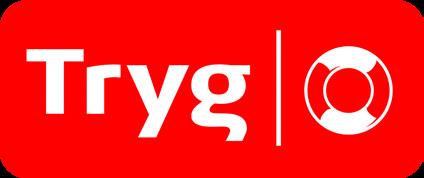
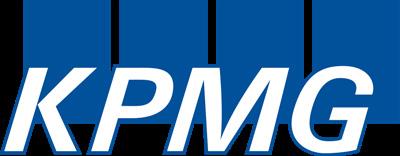





Before becoming the industry giants they are today, Novo Nordisk, Lego and Mærsk also started out as small businesses. Even though their white collars and multi billion dollars revenues are far from the startup life, established corporations play an increasingly important and active role in the Danish startup ecosystem.
As large, established companies with significant resources and market share, corporates can provide a range of benefits to startups. While some establish startup-specific offerings - e.g. their products and services at a reduced price - others engage more deeply including access to funding, expertise, office space, and networks.
Many corporates use innovation programs, accelerators and special in-house startup units to initiate their engagement with startups and the ecosystem. These programs are designed to bring startups in contact with corporates and provide them with resources and support to help them develop their businesses. Through these programs, startups
may be able to access mentorship, training, and resources to help them grow and scale their businesses.
Corporates looking to get more deeply involved in the ecosystem often do so through corporate venture capital (CVC) funds. These funds are established by corporates to invest in startups that are working on innovative technologies or business models that are relevant to the corporate’s strategic goals. By investing in startups, corporates can gain access to new technologies and business models that can help them stay competitive in their markets. In return, the startups gain access to resources they could only dream of otherwise.
In addition to providing funding, corporates can also provide startups with access to their expertise and networks.
Corporates often have significant experience and knowledge in their industries, which can be invaluable to startups that are looking to navigate complex markets. Additionally, corporates may be able to provide startups with access to their networks of customers, suppliers, and partners, which can help startups to scale and grow internationally more quickly.
Finally, corporates can play a role in the startup ecosystem by acquiring startups. By acquiring startups that are working on innovative technologies or business models, corporates gain access to new markets and technologies that can help them stay competitive. For startups, acquisition provide a valuable exit opportunity and can provide the funding and resources necessary for continued growth.

“Every day, we advise startups and founders who are at different stages of their journey. Our team specialises in tech startups, but as a large law firm, we can also benefit from some of the country’s brightest experts in areas such as SaaS, personal data, life sciences and financial regulation. Our approach is strategic and commercial. The legal advice must support the business and the growth of the startup,” Amalie explains.
This approach is something the software platform and client at Kromann Reumert, startup Weld, has benefited from.
“Our co-operation has been very satisfactory. We have always received very high quality advice in all relevant areas for a tech startup like ours. While it is tempting to use cheaper online resources, our experience has been that it is not worth it,” explains Jonas Thordal, co-founder and CEO of Weld.
“Getting it right from the start pays off. As specialists, we advise with an eye for what can create opportunities or problems for your startup in the future”, says the law firm Kromann Reumert.
Kromann Reumert has a dedicated startup & venture team specialising in start-ups’ specific affairs. They advise startups, scaleups and investors through all legal disciplines on the growth journey - from incorporation to exit.

“Everyone who runs startups knows that there are not enough hours in the day. There is not enough time. Therefore, as advisors, we have to navigate
the imperfect, be cost-conscious and have an innate understanding of what’s important for the particular startup. We know what investors care about, and we know the common pitfalls when starting a business. We need to find practical solutions that work and that can bring the startup to the next stage of its growth journey,” says Amalie Paludan, an Attorney in the Kromann Reumert-team.
The team is engaged as pro bono advisors in a number of entrepreneurship programmes such as DTU Skylab. This ensures that they support the entrepreneurs and that they have their finger on the pulse of the Danish startup ecosystem and understand the commercial
• Comprises 20 specialists in areas such as SaaS solutions, life sciences, robotics, AI, fintech and ecommerce
• Helping startups with everything from incorporation, shareholders‘ agreements, IP strategies and employment to incentive programmes, investments, transfers and exits
• Offers personalised advice at a good price
• See our guide for startups at: https://kromannreumert.com/ sites/kromannreumert.com/files/ media/document/21x21_Startup-Guide%20Vol.%201%20-%20 Sept.%202022.pdf

Danish startups do not get enough good advice when it comes to accounting and tax. As a result, many young tech companies are missing out on opportunities, according to auditing firm KPMG, which has a team focusing on startups and scaleups.
As a startup, it can be difficult to make ends meet. Experience shows that too many young Danish companies make critical mistakes or fail to capitalise on their opportunities because they do not get the right advice.
This is not helped by a general shortage of auditors in Denmark. Especially in the startup ecosystem, most auditing firms have down-prioritised young companies in favour of established
clients, primarily because they have limited capacity. Since 2014, the auditing firm KPMG has specialised in this area through their Venture & Startup team, which today services approximately 450 startups and scaleups.

“Startups and scaleups have the challenge that they need even more counselling than others, but many of the startups do not know themselves - which topics they should relate to. Startups need patient advisors, but they are often
down-prioritised - as many accountants find it easier to work with more mature
Morten Høgh-Petersen Partner, KPMG Denmark
clients,” explains Morten Høgh-Petersen, Partner in KPMG Denmark, and head of the KPMG Venture & Startup team.
In Denmark, the number of limited liability companies has doubled from 150,000 to 325,000 over the past 20 years, while the number of authorised auditors has fallen over the same period.
“The startup ecosystem is sadly underserved. This is critical, because all scalable companies need to have their house in order. Otherwise, you risk investors dropping out due to errors in VAT, tax, accounting and the risk of the errors
• 25 employees, 4 state-authorised public accountants, in Aarhus and Copenhagen

• 450 customers based in the startup environment.
• Serving startups from early-stage to scaleup and IPO
• Experts in corporate structure (holding), tax credit scheme (ll8x and ll8b), accounting, tax, stock options (ll7p), investments, soft funding, exits, IPOs and international expansion
growing,” says Morten Høgh-Petersen. Over the next ten years, there will be even fewer authorised accountants, while the number of startups and businesses is expected to increase. This is a challenge, as more advice is needed - not less.
“For most startups, it’s about getting the right advice from the start,” he summarises.
One example of this trend is the use of the tax credit scheme (ll8x), which was adopted by the Danish Parliament in 2013. The scheme allows startups, scaleups and other growth companies to receive the tax value (22%) of a loss of up to DKK 25 million if it relates to research and development expenses. A fragile phase where companies often lack liquidity.
In 2021, SKAT clarified that their interpretation of when the scheme can be used, especially in relation to software companies, is very limited. One of the effects of this has been that many startups that perform qualified research and development and their advisors - today refrain from using the scheme. Despite the limitation in terms of software, the scheme should continue to be more ben-

eficial than we see in practice, especially for some smaller startups whose activity is technological development.
If you have a tech startup doing concrete and innovative development, “every fifth krone can be recouped in cash up to the 22% of DKK 25 million per year. But when many are not aware of the opportunities, they do not use them. The good advice is that you should at least investigate the possibility,” says Morten Høgh-Petersen.
In addition, we see that too few are aware of the technical accounting possibility of capitalising development as an intangible asset (i.e. putting the development on the balance sheet). This can be crucial for the company’s equity and thus its solvency. Many startups do not understand the importance of positive equity - which, among other things, is very important. Vækstfonden and suppliers are very keen on.
“I think one of the big challenges in the coming years will be access to capital. What we’re trying to do is to get startups to make a lot of small, good decisions that may prove to increase their chances of success further down the line,” Høgh-Petersen predicts.



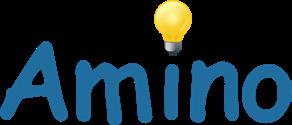








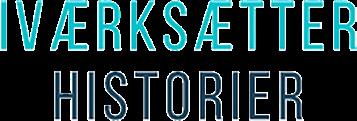

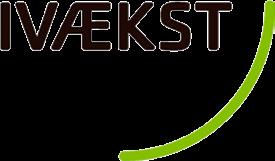












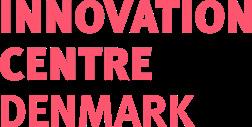



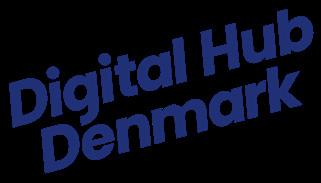

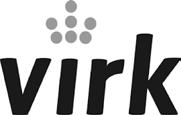





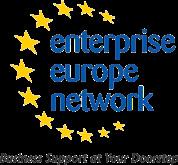



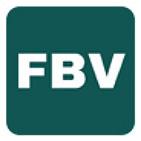


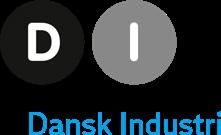
The Danish startup ecosystem is a fastgrowing and ever-evolving organism. This is what makes the ecosystem so incredibly inspiring - but also really hard to navigate, even for insiders.
Thankfully, a wealth of communities, media and resources has sprung up to support the ecosystem. Media outlets, podcasts and blogs make it easy for newcomers to understand current developments and be inspired by startups they have not heard about before. Resources like partnership templates, pitch training and specialised

guidance are readily available from a wealth of sources. And startup communities are thriving like never beforeboth physically and digitally.
Connecting the ecosystem Startup communities foster a culture of innovation and collaboration. By bringing together individuals from different backgrounds and industries, startup communities spark new ideas and collaborations that may not have been possible otherwise.
No matter if you need to find like-minded people locally, want to ex-
pand your network in a specific industry or want to discuss the latest innovations within certain technologies, there is almost certainly a community for you to connect with - e.g. Mentorfounder, where founders can get mentoring in an authentic way.
New startup communities have risen as the ecosystem has matured e.g. IDA Startup. In Aarhus, The Link is connecting the dots in the ecosystem, while the Confederation of Danish Industry (DI) is building a nationwide network of entrepreneurs big and potent enough to influence the political framework.
Sponsored: This article is published in collaboration with The Link
in a broad sense, so that we can remove the barriers that exist in the ecosystem together,” explains Mette Tønnesen.

At the same time, The Link also runs two networks with a focus on getting large companies involved in the startup environment.
“Many of the big companies have a large amount of data, market insights and opportunities for expansion abroad: resources that are worth their weight in gold for startups. At the same time, they are looking for exciting new solutions. The two networks aim to make the two ends meet - the practicalities, how to create the best relationships and how to create an understanding of startup engagement in the parent company,” says Mette Tønnesen.
Aarhus startups are doing well, and The Link wants to take the ecosystem to the next level by connecting the actors more closely - among other things, they are working on integrating corporates into the ecosystem.
Despite its modest 350,000 inhabitants, the startup ecosystem in Aarhus is bustling. The university city is fostering startups like never before, and it has already produced its first successful unicorns. They are just not very good at telling the success stories out loud.
The non-profit organization The Link has set out to change that by connecting, branding and linking the ecosystem nationally and internationally.
‘In Aarhus, we are small enough that everyone knows each other. We are big enough to really change something. So we actually have a potential here, and when we can get people running in the same direction, we can change a lot. That’s why we are fighting to turn the good fragments into a more unified ecosystem,” says Mette Tønnesen, Director of The Link.
The Link wants to connect the pieces and find the ecosystem’s challenges so that they can be solved. The effort begins with startups, but investors, educational institutions, public authorities and large companies must also be involved if the ecosystem is to be elevated. That is why The Link has invited all local stakeholders to meet in the Startup Connect group.
“We want to ensure the best connectedness. All operators need to know each other and help each other. Therefore, four times a year, we bring together everyone who helps the entrepreneurial ecosystem
• Attracting international capital
• Support next generation of founders
• Corporates into the ecosystem
• Drive up diversity in startups
• More scaleups
Startup Connect: Gather all community builders and service providers within the local startup ecosystem to help them stay on top of what’s happening, who they can make introductions to, and initiate new collaborations.
Corporate Venture Alliance: Gather corporates who strategically work with startups. The network helps them tackle challenges, knowledge share, and improve each of their efforts.
Corporate Venture Capital Network: Gather corporates that are actively investing in startups through existing corporate venture capital activities.
Become a member of Startup Connect, CVA or CVC. Contact line@thelink.dk or mette@thelink.dk

As a self-employed entrepreneur, Catharina has experienced burnout and stress. That’s why she wants to use the new video platform to help other entrepreneurs going from startup to scaleup.


”In the world of entrepreneurship, many people still associate mental illness with something negative. But the paradox is that things like stress and anxiety often arise when a founder has a big tailwind. They ride the momentum and forget about their own body. And suddenly things go wrong,” explains Catharina Christiansen.
Mental health has become a focus in many parts of the world. But this development is lagging behind the entrepreneurial environment.
That’s why FounderMentor connects founders with other founders and mentors. The strength is that the insights come from people who have experienced the entire growth journey themselves.
”Founders listen to other founders. They feel a great sense of security in listening to someone who has had their hand on the hob and been through the process,” Catharina Christiansen explains and continues:
”If we want unicorns in Denmark, we need to make sure people have a better mental journey.”
Most entrepreneurs dream of scaling. But if that happens, the founder suddenly has to hire new people, be accountable to investors and be a leader. Many are not prepared for this transition. And that’s why many entrepreneurs go down with stress, anxiety or depression.
FounderMentor - a video-based digital learning platform that helps entrepreneurs navigate the mental part of the growth journey - wants to change that.
”When you are an entrepreneur, the line between you and your business disappears. And all the professional challenges and setbacks start to feel extremely personal. So in good times, when many people believe in you and want to invest in you, a lot of expectation pressure builds up, which can be extremely difficult to handle,” says Catharina Christiansen, who co-founded FounderMentor with partner Rasmus Grundtvig.
Catharina Christiansen Co-founder, FounderMentorWith video tutorials, FounderMentor guides founders from startup to scaleup. The initiative is the first step towards better mental health in the startup ecosystem, the founders hope.Rasmus Grundtvig and Catharina Christiansen have co-founded FounderMentor - a video-based digital learning platform that helps entrepreneurs through the growth journey
Sponsored: This article is published in collaboration with Dansk Industri

The startup ecosystem is invited when the Confederation of Danish Industry is shaping the future of entrepreneurship i Denmark. A strategy that will translate challenges in the ecosystem into concrete policies that can make life easier for startups.
Around 200 entrepreneurs, investors, universities, ecosystem people and politicians were present when the Confederation of Danish Industry (DI) organised the kick-off for Denmark’s new entrepreneurship strategy at the beginning of the year. Input that will be presented to the government during its work with a new policy in this field. This is why DI gathered the startup ecosystem to make sure that their voices are heard.
“A new entrepreneurship strategy is a top priority for us. There is a need to create better conditions for entrepreneurs in Denmark. Denmark is not creating enough scalable businesses, which is a problem: new technologies come from this segment. Other countries have a better understanding that the startup ecosystem creates the companies of the future, and there is global competition to attract the best minds. That’s why we need to raise the bar and increase our ambitions so that Denmark’s strategy is as ambitious as possible,” says Sine Linderstrøm, Head of SMEs and Entrepreneurship at DI.
In 2021, DI developed an entrepreneurship policy with 25 concrete proposals, but at that time the government did not fulfil its promised entrepreneurship package. This time, entrepreneurship is written into the government’s constitution, and by inviting the ecosystem to the drawing board, DI will bring the ecosys-
tem’s concrete wishes to the table.
“There are still challenges that have not been solved, including the areas of tax, investment and talent attraction. We are very aware and we listen to the ecosystem - both to confirm the problems we already know about, but also to bring in new input,” says Linderstrøm.

Entrepreneurs’ meeting place DI currently organises almost 20,000 companies representing more than 10 sectors and 100 member associations. From small, new startups to large international enterprises. The business community is thus broadly represented in DI, but in recent years, efforts have been stepped up in favour of startups.
• Get a year‘s free membership as an entrepreneur, giving you access to all DI‘s services
• Join DI‘s Scaleup network with other founders on a growth journey
• Make use of DI‘s 11 international offices in the USA, China, Germany, India and elsewhere
• Call our lawyers when you need help with your employment contract, GDPR, etc.
• Join us for our numerous courses and events on entrepreneurship,
“As Denmark’s largest business organization, it is a top priority to create better conditions when starting and scaling a business in Denmark. That’s why we offer several services to help them on their way,and we have them right at the heart of our entrepreneurship policy. We do a lot to create a community around entrepreneurship because as a startup founder,
sales, sustainability, digitalisation, internationalisation and much more
• Reduce your costs for employees during maternity leave and pregnancy through Industriens Barselsfond
• Meet other companies in your sector through DI‘s 11 sectoral communities
• Get your voice heard. DI‘s main focus points of a new entrepreneurship strategy is to get more startup-friendly tax rules, a stronger investment and shareholding culture in Denmark, more spinouts from the universities and a more diverse startup environment.
you can feel very lonely,” says Linderstrøm.
As a startup member of DI, you get access to networks, annual meetings and services such as advice on personnel law, GDPR, internationalisation and sustainability. For more established entrepreneurs, there is a formal Scaleup Network that meets four times a year to exchange experiences. And with its broad membership base, DI also has the opportunity to forge new connections across the business community.
“We organise both Denmark’s largest
companies and the startups, which gives us the framework for cross-matchingand that access is valuable for startups,” says Linderstrøm.
With DI behind them, entrepreneurs not only get support on their growth journey, but also a greater opportunity to influence the politicians at Christiansborg who set the framework for startups.
“We speak with the backing of almost 20,000 companies, so what we say is being
heard,” says Linderstrøm.
Size is crucial if the wishes of entrepreneurs are to be translated into political proposals. DI has the experience and competencies to take the entrepreneurial strategy into the Danish Parliament.
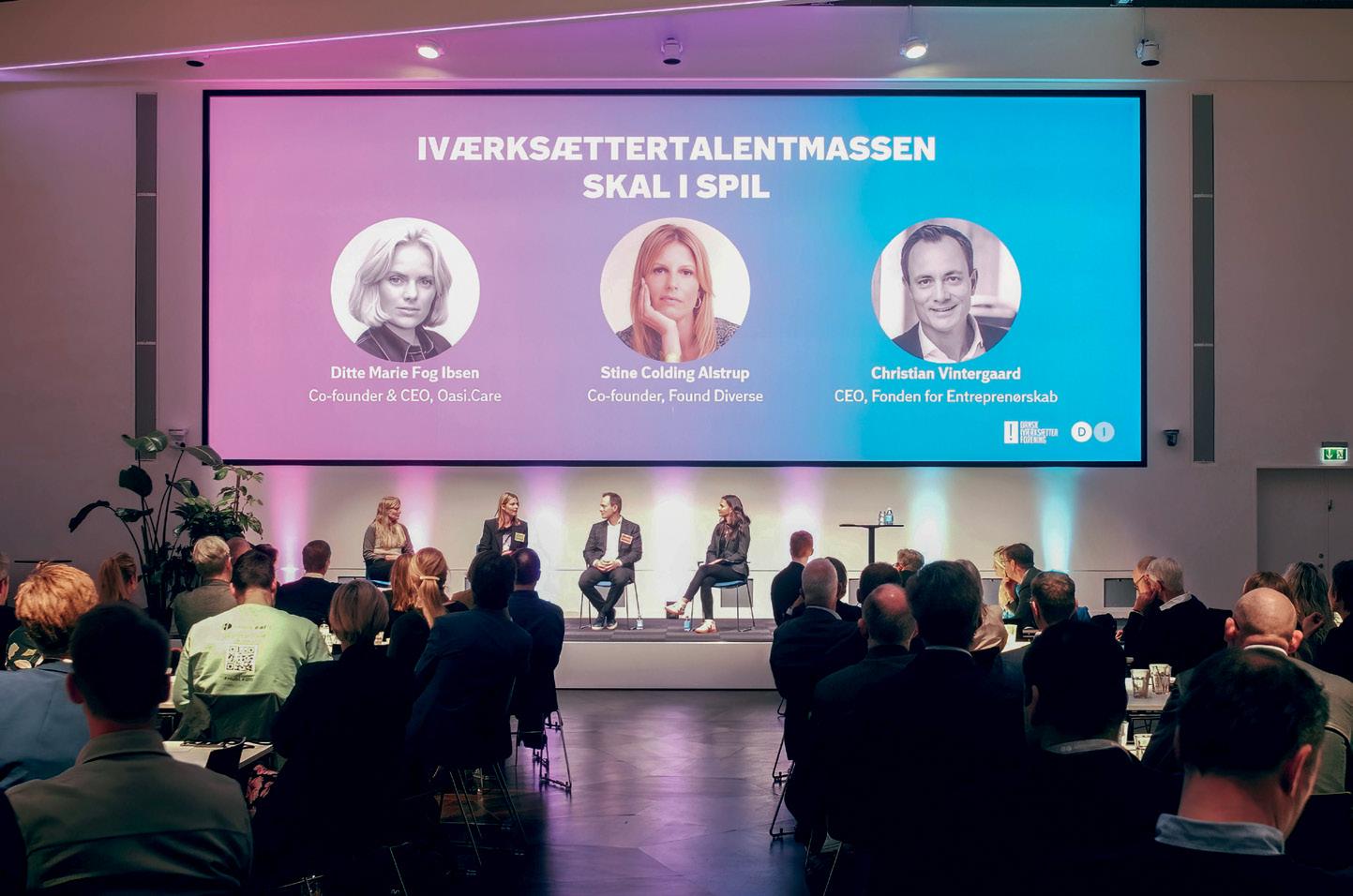
“As a society, we depend on the creation of new businesses; our largest members used to be startups. Political influence requires capacity and specialised knowledge, and we have the right platform to translate the ecosystem’s wishes into policy that can be taken to politicians and civil servants to create more ambitious framework conditions,” says Linderstrøm.
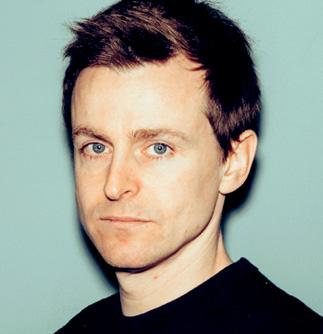
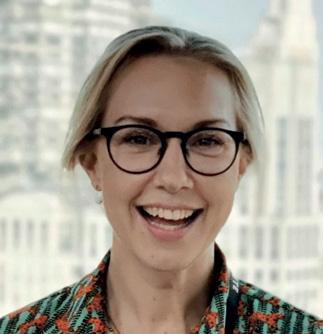
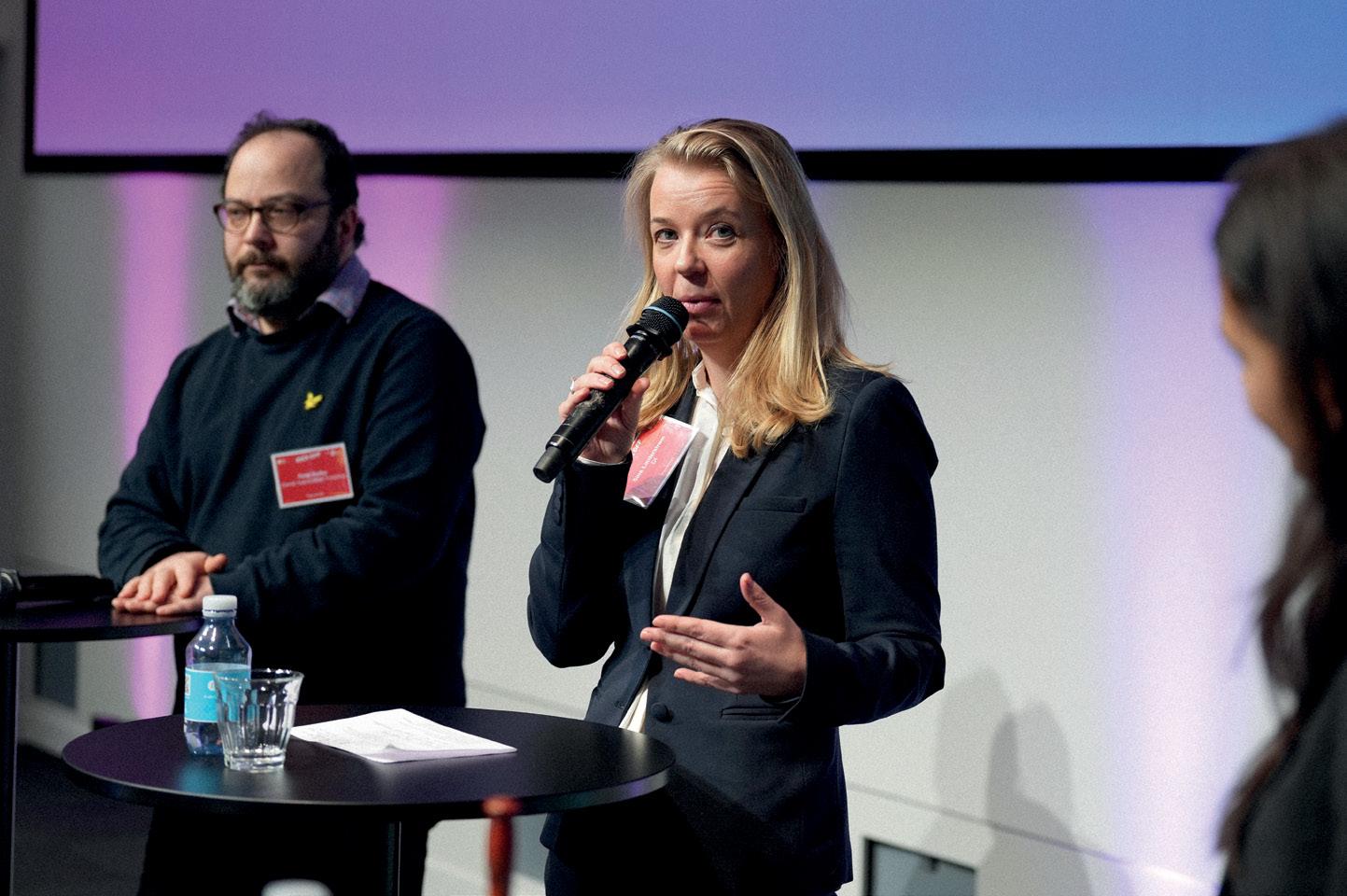
DI is without a doubt an important voice for Danish entrepreneurs at Christiansborg. As part of the work in their Startup & Growth Advisory board, we have, among other things, looked at how we seize the opportunity to make Denmark a pioneer in innovation in the green transition, and how we make internationalisation a natural part of Danish startups‘ growth plans.«
Jarl Engelbrecht Vindnæs Founder & CEO, StykkaWith DI‘s focus on growth companies, the startup ecosystem has gained the necessary muscles required to create the foundation for Denmark‘s future growth.«

At DI, we offer one year free membership for startups. Do you want to become part of Denmark‘s largest business community? Read more here: di.dk/ivaerksaetter or scan the QR code.
 More than 200 stakeholders from the startup ecosystem attended DI’s kick-off for a new entrepreneurship strategy.
Mia Grosen Founder & CEO, Canute
More than 200 stakeholders from the startup ecosystem attended DI’s kick-off for a new entrepreneurship strategy.
Mia Grosen Founder & CEO, Canute
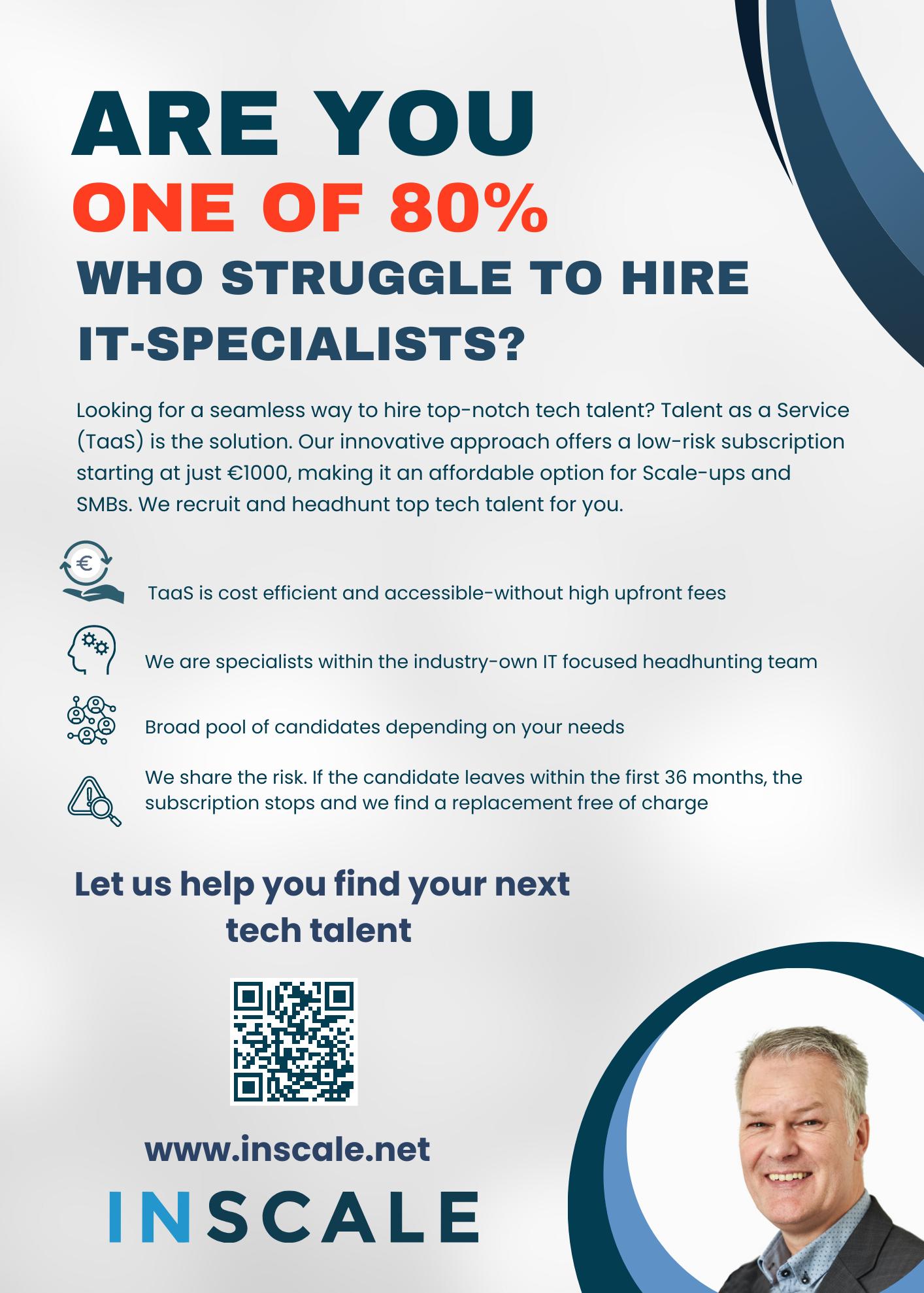




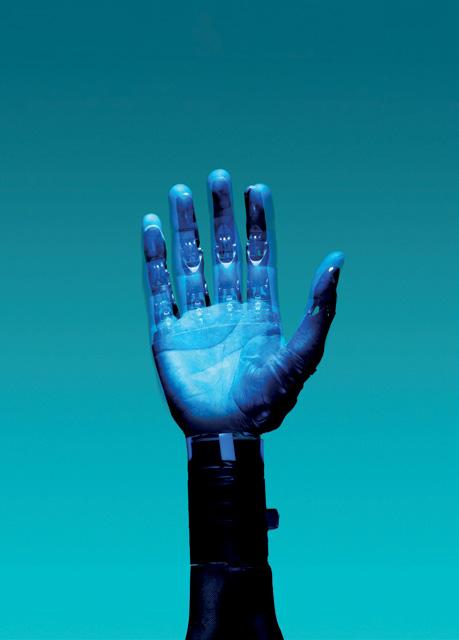

Aarhus Slush‘D
https://www.startupaarhus.com/slushd-aarhus#tickets
IP Matters
https://www.pv.eu/about/ip-matters/ Creative Business Cup
https://cbnet.com/cup/
Danish Entrepreneurship Festival
http://danishentrepreneurshipfestival.ffe-ye.dk/ Days of Impact
https://daysofimpact.dk/da/hjem/
Digital Tech Summit
Digital Tech Summit
EY Entrepreneur Of The Year
https://www.ey.com/da_dk/eoy
Global Entrepreneurship Week
https://gew.dk/ Green Startup Cup
https://greenstartupcup.dk/ Guldæg
https://www.xn--guldg-vra.dk/
INCUBA prisen
https://incuba.dk/community/incuba-prisen/ Innovationsprisen
https://www.via.dk/kampagner/innovationsprisen
Iværksætterfestival Odense
https://www.odense.dk/erhverv/ivaerksaetter/kurser-ogarrangementer/ivaerksaetterfestival
KlimaBoost
https://midspar.dk/events/aaretsklimaivaerksaetter-2022/
Nordic Fintech Week
https://nfweek.com/
Nordic Innovation Fair
https://nordic-innovation-fair-2022.b2match.io/
Nordic Startup Award
https://nordicstartupawards.com/
Odin Award
https://odinaward.dk/
SDG Tech Awards
https://sdgtechawards.com/ Startup Planet
https://startupplanet.dk/ Startup Summit Odense
https://www.startupsummitodense.dk/
StartupAarhus Townhall
https://www.startupaarhus.com/ TechBBQ
https://techbbq.dk/ The One Initiative
https://www.oneinitiative.org/ University Startup World Cup
https://venturecup.dk/uswc/ Venture Cup
https://venturecup.dk/
AAU Student Entrepreneurship
https://www.se.aau.dk
AU Launch
https://thekitchen.io/offers/aulaunch/ BioMedical Design
https://biomedicaldesign.dk
Business Factory
https://btech.au.dk/organisation/ velkommentilbusinessfactory
CBS Startup
https://www.cbsstartup.dk
Copenhagen Health Innovation
https://copenhagenhealthinnovation.dk
Copenhagen School of Entrepreneurship https://cse.cbs.dk
Cphbusiness
https://www.cphbusiness.dk
DTU Skylab
https://www.skylab.dtu.dk
DTU X-Tech
https://www.entrepreneurship.dtu.dk/education/x-techentrepreneurship
Fonden For Entreprenørskab
https://ffefonden.dk
Food eHub
https://projects.au.dk/foodehub
HatchIT Lab
https://projects.au.dk/hatchitlab
ITU Business Development
https://itu-bd.dk
ITU Startup
https://itustartup.dk
KEA Startup Hub
https://kea.dk/iværksætteri
KU Lighthouse https://lighthouse.ku.dk/
NOVI Legatet
https://novi.dk/novilegat
ORBIT LAB
https://orbitlab.au.dk
SDU RIO
https://www.sdu.dk/da/om_sdu/sdurio
Startup Factory
https://ingenioer.au.dk/uddannelser/startup-factory-au-engineering Station
https://www.station.dk/
Stibo Accelerator
https://www.stiboaccelerator.com
Synapse
https://www.synapse-connect.org
UCN Next Step
https://www.ucn.dk/samarbejde/ucn-next-step UCPH Innovation Hubs https://ie.ku.dk/for-studerende/ucphinnovationhub Venture Cup
https://venturecup.dk
VIA Studentervæksthuse
https://www.via.dk/samarbejde/via-studentervaeksthuse
VILLUM P2X Accelerator Program https://vpx.dtu.dk/
UNIVERSITIES
Royal Danish Academy https://kglakademi.dk/
Aalborg University
https://www.aau.dk
Aarhus University
https://www.au.dk
Copenhagen Business School https://www.cbs.dk/ IT University of Copenhagen https://en.itu.dk
Roskilde University
https://ruc.dk/ Technical University of Denmark https://www.dtu.dk
University of Copenhagen https://www.ku.dk
University of Southern Denmark https://www.sdu.dk/da
LOCAL ENTRY POINTS
Billund Erhverv https://billunderhverv.dk/ Business Aalborg https://www.aalborg.dk/business Business Center Bornholm https://businesscenterbornholm.dk/ Business Esbjerg https://www.businessesbjerg.com/en/ Business Horsens https://businesshorsens.dk/ Business Kolding https://www.businesskolding.dk/ Business Lolland-Falster https://businesslf.dk/ Business Randers https://www.erhvervranders.dk/ Business Viborg https://businessviborg.dk/ Erhvervsforum Roskilde https://erhvervsforum.biz/ Erhvervshus Nord https://www.erhvervshusnord.dk/ Erhvervsrådet Herning & Ikast-Brande https://www.erhvervsraadet.dk/ Erhvervsservice Syddjurs https://www.essyddjurs.dk/ Erhvervsudvikling ProVarde https://www.provarde.dk/ ETKerteminde https://etkerteminde.dk/ Iværksætter-danmark https://ivdk.dk/
Middelfart Erhvervscenter https://middelfart-erhverv.dk/ Ringkøbing-Skjern Erhvervsråd https://www.rserhverv.dk/ Silkeborg Business https://silkeborgbusiness.dk/ Sønderborg Vækstråd https://svr.sonderborg.dk/ivaerksaetter/ STARTVÆKST Aarhus https://www.startaarhus.dk/ Udvikling Assens https://udviklingassens.dk/ UdviklingVejen https://www.udviklingvejen.dk/
REGIONAL ENTRY POINTS
Erhvervshus Fyn https://ehfyn.dk
Erhvervshus Hovedstaden https://ehhs.dk
Erhvervshus Midtjylland https://erhvervshusmidtjylland.dk
Erhvervshus Nordjylland https://ehnj.dk
Erhvervshus Sjælland
https://ehsj.dk
Erhvervshus Sydjylland
https://ehsyd.dk
STARTUP COMMUNITIES, MEDIA & RESOURCES
IDA
https://ida.dk/raad-og-karriere/selvstaendig-eller-startup Startup Aarhus
https://startupaarhus.com
Foundermentor
https://www.foundermentor.io/
Amino
https://www.amino.dk
Bootstrapping
https://bootstrapping.dk
Cuttles
https://www.cuttles.io
Danish Startup Group
https://www.danishstartupgroup.com
Dansk Iværksætter Forening
https://www.d-i-f.dk
Decision Makers
http://www.decisionmakers.dk/
Djøf
https://www.djoef.dk
EduHub
https://edtechdenmark.dk/
EnhjørningBot
https://enhjorning.bot
FounderUp
https://www.linkedin.com/company/ future-female-founders
Go Zebra
https://www.gozebra.dk
Ivækst
https://ivaekst.dk/
Iværksætterhistorier
https://ivaerksaetterhistorier.dk
Iværksætterretshjælpen
http://www.ivsr.dk
IVN
https://ivn.dk
Mesh Community
https://meshcommunity.com
nBoard
https://www.nboard.dk
Netvækst
https://netvaekst.dk/
NOME
https://nome.nu
Nordic 9
https://nordic9.com
Pitcherific
https://pitcherific.com
PSV Academy
https://www.psvacademy.dk
Silicon Vikings
https://www.siliconvikings.com
Sociale Entreprenører Danmark
https://socialeentreprenorer.dk
Startinfo.dk
https://www.startinfo.dk
Startup Central
https://www.startupcentral.dk
Startup Club Aalborg
https://startupclubaalborg.dk/ Startup Guide
https://startupguide.com
Startup Odense
https://startupodense.com
Startupsvar
https://startupsvar.dk/ Tech Nordic Advocates
https://www.technordicadvocates.org
TECHHUB SYD
https://techhubsyd.dk
Techsavvy
https://techsavvy.media
The Hub
https://thehub.io
Alexandra Instituttet
https://alexandra.dk
Bioneer
https://bioneer.dk
DBI
https://brandogsikring.dk
DFM https://dfm.dk
DHI
https://www.dhigroup.com
FORCE Technology
https://forcetechnology.com
Teknologisk Institut
https://www.teknologisk.dk
Bestyrelseskvinder
https://www.bestyrelseskvinder.dk
Diversity Commitment
https://diversity-commitment.com
Female Go-Getters
https://femalegogetters.com
Female Leadership Academy
https://www.female-leadership-academy.com
Found Diverse
https://www.founddiverse.com
InTechFounders
https://www.intechfounders.com
Kvindekompagniet
https://www.kvindekompagniet.org
Kvindelige iværksættere
https://www.kvindeligeivaerksaettere.dk
Leap Forward
https://www.leapforward.international
Next Women
https://www.ucn.dk/samarbejde/ucn-next-step/next-women
Nordic Female Founders
https://nordicfemalefounders.dk
Nordic Women in Tech Awards
https://nordicwomenintechawards.com
SelectionF
https://selectionf.com
Time to Raise
https://www.timetoraise.co/
Unconventional Ventures
https://www.unconventional.vc
We Promote Women
https://www.wepromotewomen.dk/
With Purpose
https://www.wpurpose.org/
Women in Tech
https://www.womenintech.dk
Women in Tech Programme
https://www.technordicadvocates.org/women-in-techgrowth-programme
IDA Crowdfunding
https://crowdfunding.ida.dk
Booomerang
https://www.booomerang.dk
Coop Crowdfunding
https://crowdfunding.coop.dk
Dansk Crowdfunding Forening
http://danskcrowdfundingforening.dk
Flexfunding
https://www.flexfunding.com
Fundbricks
https://www.fundbricks.com/ Funderbeam https://www.funderbeam.com
Green Crowdfunding Accelerator
https://www.sustainary.org/green-crowdfunding-accelerator Kameo
https://www.kameo.dk
Lendino
https://www.lendino.dk
Pepins
https://www.pepins.com/en
Seedrs
https://www.seedrs.com/ SMVerhvervslån
https://www.smverhvervslaan.smvdanmark.dk Wefunder
https://wefunder.com/
AI Innovation House https://www.aiinnovationhouse.dk/ BLOXHUB
https://bloxhub.org
CAMP
https://thecamp.io
Companyons
https://companyons.dk
Copenhagen Fintech Lab https://copenhagenfintech.dk/startups/copenhagen-fintech-lab/ Cowork Klitmøller https://www.cowork-klitmoller.dk/ Coworking Plus
https://www.coworkingplus.dk
CPH Food Space
http://cphfoodspace.dk/ CPHLabs
https://cphlabs.dk/ Dandy Business Park
https://www.dandybusinesspark.dk/en
Den Gode By https://dengodeby.dk
DISIE
https://disie.dk
DTU Link
https://link.dtu.dk/
Female Founders House
https://www.jeudan.dk/ejendomme/female-founders-house/ Filmby Aarhus
https://filmbyaarhus.dk
Food Innovation House
https://www.foodinnovationhouse.dk
Fremtidsfabrikken
https://fremtidsfabrikken.svendborg.dk
Futurebox
https://dtusciencepark.com/futurebox
Greencubator
https://greencubator.dk
GrowAAL
https://novi.dk/dk/grow-aal-city Headstart Fashion
https://headstartfashion.ldcluster.dk
Health Tech Hub Copenhagen
https://www.healthtechhub.org
Joes & Cos
https://www.joesandcos.com/ Lifestyle Lab Cph
https://ldcluster.com/portfolio-item/lifestyle-lab-cph/ Mama I Made It
https://mamaimadeit.dk
Matrikel1
https://meshcommunity.com/hubs/matrikel1
Nomad
https://www.nomadworkspace.com
Office Club
https://www.officeclub.dk
Officelab
https://officelab.dk
Republikken
https://republikken.net
SOHO
https://www.soho.dk
Spinderihallerne https://www.spinderihallerne.dk
Sports Lab Copenhagen
https://www.sportslab.sport Syndikatet
http://aalborgsyndikatet.dk
Talent Garden
https://talentgarden.org
The Startup Company
https://thestartupcompany.dk
Trifolium
https://trifo.dk/
VentureVillage
https://www.venturevillage.dk/# Visti Unlimited
https://www.vistiunlimited.com/
SCIENCE, TECHNOLOGY & DEV. PARKS
TechStation
https://www.techstation.nu
Ecopark
https://ecopark.dk
Sound Hub
https://soundhub.dk
Agro Business Park
https://www.agrobusinesspark.dk
Agro Food Park
https://www.agrofoodpark.dk
Arsenalet
https://www.arsenalet.dk
Base Business Bjerringbro
https://www.basebusiness.dk
Business Park Nord
https://businessparknord.dk
Businesspark Struer
https://businessparkstruer.dk
COBIS
https://symbion.dk/lokation/cobis/
Construction Center Denmark
https://constructioncenter.dk
DTU Science Park
https://dtusciencepark.com
Ferskvandscentrets Erhvervspark
https://fvc-erhvervspark.dk
GreenLab
https://www.greenlab.dk
INCUBA
https://incuba.dk
Innovatorium
https://innovatorium.dk
Innovest
https://www.innovest.dk
MindFuture
https://www.mindfuture.com/ NIRAS Green Tech Hub
https://nirasgreentechhub.dk/ NOVI
https://novi.dk
Nupark
https://nupark.dk
Syddanske Forskerparker
https://syddanskeforskerparker.dk
Symbion
https://symbion.dk
The Kitchen
https://thekitchen.io/ UdviklingVejen
http://www.udviklingvejen.dk
Videnparken
https://videnparken.dk
Vokseværket VitaPark
https://voksevaerket.biz
NATIONAL CLUSTERS
Odense Robotics
https://www.odenserobotics.dk
CenSec
https://censec.dk
CLEAN
https://cleancluster.dk
Copenhagen Fintech
https://copenhagenfintech.dk
Danish Life Science Cluster
https://www.danishlifesciencecluster.dk
Danish Sound Cluster
https://danishsoundcluster.dk
DigitalLead
https://digitallead.dk
Energy Cluster Denmark
https://www.energycluster.dk
Food & Bio Cluster Denmark
https://foodbiocluster.dk
Lifestyle & Design Cluster
https://ldcluster.com
MADE
https://www.made.dk
Vision Denmark
https://www.visiondenmark.dk
We Build Denmark
https://webuilddenmark.dk
Hub for Innovation in Tourism
https://innohub.dk/
Danish.Care
https://www.danish.care
Akademiet for Social Innovation
https://www.akademietforsocialinnovation.dk/ ConTech Lab
https://molio.dk/nyheder-og-viden/netvaerk/ contech-lab
Copenhagen Science City
https://copenhagensciencecity.dk
CORO
https://corolab.dk
Cyber Hub
https://cyberhub.dk
Danish Creative Industries
https://www.danishcreativeindustries.dk/
Dansk AM Hub
https://am-hub.dk
DNNK
https://www.dnnk.dk
EdTech Denmark
https://edtechdenmark.dk/
Game Hub Scandinavia
https://gamehubdenmark.com/
Gate 21
https://www.gate21.dk
Green Hub Denmark
https://greenhubdenmark.dk/ Maker
https://maker-effekt.dk
Medicon Valley Alliance
https://mva.org
Ørestad Innovation City Copenhagen
https://oicc.dk
PropTech Denmark
https://www.proptechdk.dk
REBBLS
https://rebbls.dk
Science City Lyngby
https://vidensby.dk
Water Valley Denmark
https://watervalleydenmark.com/
BA NETWORKS
Aarhus Investor Summit
https://aarhusinvestorsummit.dk
Angel Investor Meetup
https://investinodense.dk/ Angella Invest
https://www.angellainvest.com/ Business Angels Syddanmark
https://www.businessangelssyd.com
CVX Ventures
https://www.cvx.vc
DanBAN
https://danban.org
Heyfunding
https://www.heyfunding.dk
Investor Hub Viborg
https://investorhub.dk
Keystones
https://keystones.dk
Løvens Hule
https://www.dr.dk/drtv/serie/loevens-hule_69856
Nordic Female Founders
https://nordicfemalefounders.dk/ Nordjysk Invest
https://www.nordjyskinvest.dk
Odense Investor Summit
https://investinodense.dk/
Time:Angels
https://timeangels.co
Venture City Horsens
https://venturecity.dk
Deloitte
https://www2.deloitte.com/dk/da/pages/fast-growingcompanies.html
Visma Dinero
https://dinero.dk/ Kromann Reumert
https://kromannreumert.com/raadgivning/brancher/ startup-venture
KPMG
https://kpmg.com/dk/da/home/services/revision/ vaekstvirksomheder-og-startups.html
Danske Bank Growth https://danskebank.com/growth
Alfa Laval
https://www.alfalaval.dk/info/denmark/innovation-house/ AURA Ventures https://ventures.aura.dk/
EY
https://www.ey.com/da_dk
KMD Ventures
https://www.linkedin.com/company/kmd-venture/ LEGO Ventures
https://legoventures.com
Lundbeckfonden
https://lundbeckfonden.com/about-lundbeckfonden-ventures Maersk Growth
https://www.maersk.com/growth
Moalem Weitemeyer
https://moalemweitemeyer.com/
Niras
https://nirasgreentechhub.dk/
Nordea Startup & Growth
https://www.nordea.dk/erhverv/din-virksomhed/ startup-and-growth.html
Novo Holdings
https://www.novoholdings.dk/ Realdania
https://realdania.dk/
Norlys
https://norlys.dk/om-norlys/vaekstpulje/ Tryg
https://thecamp.io/
Vestas Ventures
https://www.vestas.com/en/about/our-partners/vestasventures
SOFT FUNDING
Access2innovation
https://www.access2innovation.com
Alexander Foss‘ Industrifond
https://www.danskindustri.dk/om-di/hvad-er-di/di-fonde/ alexander-foss/ BETA.HEALTH
https://betahealth.dk/
EIC Accelerator
https://eic.ec.europa.eu/eic-funding-opportunities/ eic-accelerator
Elforsk
https://elforsk.dk
EUDP
https://eudp.dk
EUopSTART
https://ufm.dk/en/research-and-innovation/fundingprogrammes-for-research-and-innovation/find-danishfunding-programmes/euopstart
Eureka
https://www.eurekanetwork.org
Giant Prize
https://www.giant.vc/giant-prize-dk
GUDP
https://gudp.lbst.dk
Heyfunding Legatet
https://blog.heyfunding.dk/blog/heyfunding-legatet
Innobooster https://innovationsfonden.dk/en/programmes/innobooster
Innofounder
https://innovationsfonden.dk/en/programmes/innofounder
Innovation til marked https://innovationtilmarked.dk
Innovationsfonden
https://innovationsfonden.dk/da
Mikrolegat
https://mikrolegat.ffe-ye.dk
MUDP
https://ecoinnovation.dk
Norlys Vækstpulje
https://norlys.dk/om-norlys/vaekstpulje
Otto Bruuns Fond
https://www.ottobruunsfond.dk/
SMV:Food Innovation
https://foodbiocluster.dk/projekter/open-calls
Velliv Foreningen
https://www.vellivforeningen.dk/ Virksomhedsprogrammet
https://virksomhedsprogrammet.dk
INCUBATORS & ACCELERATORS
BioInnovation Institutes
https://bii.dk
CareTech CHALLENGE
https://www.danish.care/aktiviteter/caretechchallenge-2021-2022
DIF Innovation Lab
https://www.difinnovationlab.dk
Open Entrepreneurship
https://open-entrepreneurship.com
Odense Robotics
https://www.odenserobotics.dk
Vækstfabrikkerne
https://vaekstfabrikkerne.dk
SoundTech Accelerator
https://soundhub.dk/soundtech-accelerator-program/ Accelerace
https://www.accelerace.io
Akademikernes Startup
https://aka.dk/medlemstilbud/startup/Program/ Beyond Beta https://beyondbeta.dk
Beyond Beta Green https://www.sustainary.org/beyond-beta-green/ Canute
https://canute.io
CoC Playful Minds https://www.cocplayfulminds.org
Danish Tech Challenge
https://dtusciencepark.dk/futurebox/danish-tech-challenge Den Sociale Kapitalfond
https://densocialekapitalfond.dk
EIT Climate-KIC
https://www.climate-kic.org
EIT Food
https://www.eitfood.eu
EIT Urban mobility
https://www.eiturbanmobility.eu
EKF Green Accelerator
https://ekf.dk/en/green-accelerator-1
ESA Business Incubation Centre
https://www.esabic.dk
Food & Bio Cluster Denmark
https://foodbiocluster.dk
Futurebox
https://dtusciencepark.dk/futurebox
Game Hub Denmark
https://gamehubdenmark.com
Go Grow
https://cse.cbs.dk/go-grow
GOB2B Munich
https://gob2bmunich.com
GreenUP Accelerator
https://dtusciencepark.com/futurebox/greenup
Hub for Innovation in Tourism
https://innohub.dk/
Ideas Lab
https://filmbyaarhus.dk/klyngeudvikling/inkubatoren-ideas-lab
INCUBA StartupLab
https://incuba.dk/startuplab/ Innofounder
https://innovationsfonden.dk/en/programmes/innofounder
Neighborhood
https://voisinconsulting.com/neighborhood/ NIRAS Green Tech Co-Pilot Program
https://nirasgreentechhub.dk/programs/ Nordic Health Lab
https://nordichealthlab.com/ PreFlight Odense
https://preflightodense.com/ Propagator
https://propagator.co
Reach for Change
https://reachforchange.org
The Circular Lab
https://www.roskilde-festival.dk/en/circular-lab/ open-call-23/
WE BUILD Incubator
https://webuilddenmark.dk/we-build-incubator/
Antler
https://www.antler.co
Black Capital Ventures
https://blackcapitalventures.com/
Den Danske Maritime Fond
https://www.dendanskemaritimefond.dk/ North Ventures
https://northventures.dk/
ArK Kapital
https://www.arkkapital.com
Backing Minds
https://www.backingminds.com/# Basecamp Invest
http://www.basecampinvest.com/
Bjergegaard & co
https://www.bjergegaard.co/ Blazar Capital
https://blazarcapital.com
Brand New Ventures
https://www.brandnewventures.com
byFounders
http://byfounders.vc
Climentum Capital
https://www.climentum.com/ Coop Invest
https://www.coopinvest.dk/
Crowberry Capital
https://www.crowberrycapital.com/
Design to Improve Life Fund
https://theindexproject.org/invest
Dreamcraft
https://dreamcraft.vc
Eir Ventures
https://eirventures.eu
Flying Bizkit
https://flyingbizkit.dk/
Founderment
https://www.founderment.dk
Global Roadrunner
https://www.globalroadrunner.com
Hands-on Mikrofonden
https://hands-on-mikrofonden.dk/ Heartcore
https://www.heartcore.com
Heartland
https://heartland.co
Investo Capital
https://www.investo.dk
Kiloo Ventures
https://kilooventures.com/ Kjøller
https://kjoller.com/
Kompas
https://www.kompas.vc/
KRING
https://kring.com/
Look Up Ventures
https://lookupventures.com/ Lottrup & Co
https://lottrupco.dk/
Love Mondays
https://lovemondays.dk/
Medley Capita
https://www.medley.vc/
Mega Trend Invest
https://mega.as
Morph Capital
https://www.morph.vc
NOON Ventures
https://www.noon-ventures.com
Nordic Eye
http://nordiceye.com
Nordic Makers
http://www.nordicmakers.vc
Nordjysk Lånefond
https://nordjysklaanefond.dk/
North East Venture
http://north-east-venture.com
People Ventures
https://www.peopleventures.vc
Planetary Impact Ventures
https://www.piventures.dk
PreSeed Ventures
http://preseedventures.dk
Promentum Equity Partners
http://www.promentumequity.dk
Rockstart
https://rockstart.com/ Scale Capital http://scalecapital.com
Scandinavian Film Funds https://scandinavian.fund
Seed Capital https://www.seedcapital.dk
Sound Bioventures
https://soundbioventures.com/ Sunstone https://sunstone.eu
The Aventures
https://the.aventures.fund/#the-aventures
The Footprint Firm
https://thefootprintfirm.com
The White Box
https://www.thewhitebox.dk/ Ugly Duckling Ventures
https://www.uglyduckling.ventures/ Upfin
https://www.upfin.io/ Vækstfonden
https://vf.dk/finansiering/egenkapitalinvestering VÅR Ventures
https://www.vaar.vc/ Volvér
https://www.volver.vc/ 2150 https://www.2150.vc/
Nordic Secondary Fund https://www.n2f.vc/ Blue https://blue.dk/en/ Dansk Ejerkapital https://www.danskejerkapital.dk/ Dansk Generationsskifte https://danskgenerationsskifte.dk/ Den Sociale Kapitalfond https://densocialekapitalfond.dk/en Erhvervsinvest http://www.erhvervsinvest.dk/ Executive Capital https://www.executivecapital.dk/ Gro Capital https://www.grocapital.dk/ Impact Partners https://nordic.impact-partners.com Jysk-Fynsk Kapital https://www.jf-kapital.dk/ Kirk Kapital https://www.kirkkapital.dk/ Maj Invest https://majinvest.com/ Nasdaq First North https://www.nasdaq.com/solutions/nasdaq-first-northgrowth-market Nordic Alpha Partners https://napartners.dk/ Offspring Capital https://offspringcapital.dk/ Polaris https://polarisequity.dk/
Spotlight Stock Market
https://spotlightstockmarket.com/en
Vækst Invest Nordjylland https://vaekstinvest.dk/ Vækstfonden
https://vf.dk/ VækstPartner Kapital
https://www.vpkapital.dk/
VIA equity
https://viaequity.com/
MISCELLANEOUS
Nordic Innovators
https://www.nordicinnovators.com/
DI - Dansk Industri
https://www.danskindustri.dk
The Link
https://thelink.dk
Copenhagen Capacity
https://www.copcap.com
Patent- og Varemærkestyrelsen
https://www.dkpto.dk
Innovation Centre Denmark
https://icdk.dk/ Plougmann Vingtoft
https://www.pv.eu/
Connect Denmark
https://www.connectdenmark.com/
Danish Design Center
https://ddc.dk
Danmarks Eksport- og Investeringsfond
https://www.eifo.dk/ Dansk Erhverv
https://www.danskerhverv.dk
Digital Hub Denmark
https://digitalhubdenmark.dk
EKF
https://www.ekf.dk
Enterprise Europe Network
https://een.ec.europa.eu
EU-DK Support
https://eusupport.dk
FBV – Foreningen af Børsnoterede Vækstvirksomheder: https://fbv.nu/
Frie
https://www.frie.dk/selvstaendig/
FundingBox
https://fundingbox.com
IFU – Investeringsfonden for Udviklingslande https://www.ifu.dk/en/frontpage
Industriens Fond
https://www.industriensfond.dk
Invest in Denmark
https://investindk.com
Nordic Asian Venture Alliance
https://nordicasian.vc/ Opfind.nu
https://opfind.nu
Plug and Play
https://www.plugandplaytechcenter.com/ SMVdanmark
https://smvdanmark.dk
Start-up Denmark
https://startupdenmark.info
The Association of Tech Startups in Denmark
https://www.techstartup.dk
The Trade Council
https://um.dk/the-trade-council
Virk
https://virk.dk
Virksomhedsguiden
https://virksomhedsguiden.dk
Powered by TechSavvy & Heyfunding































































































































